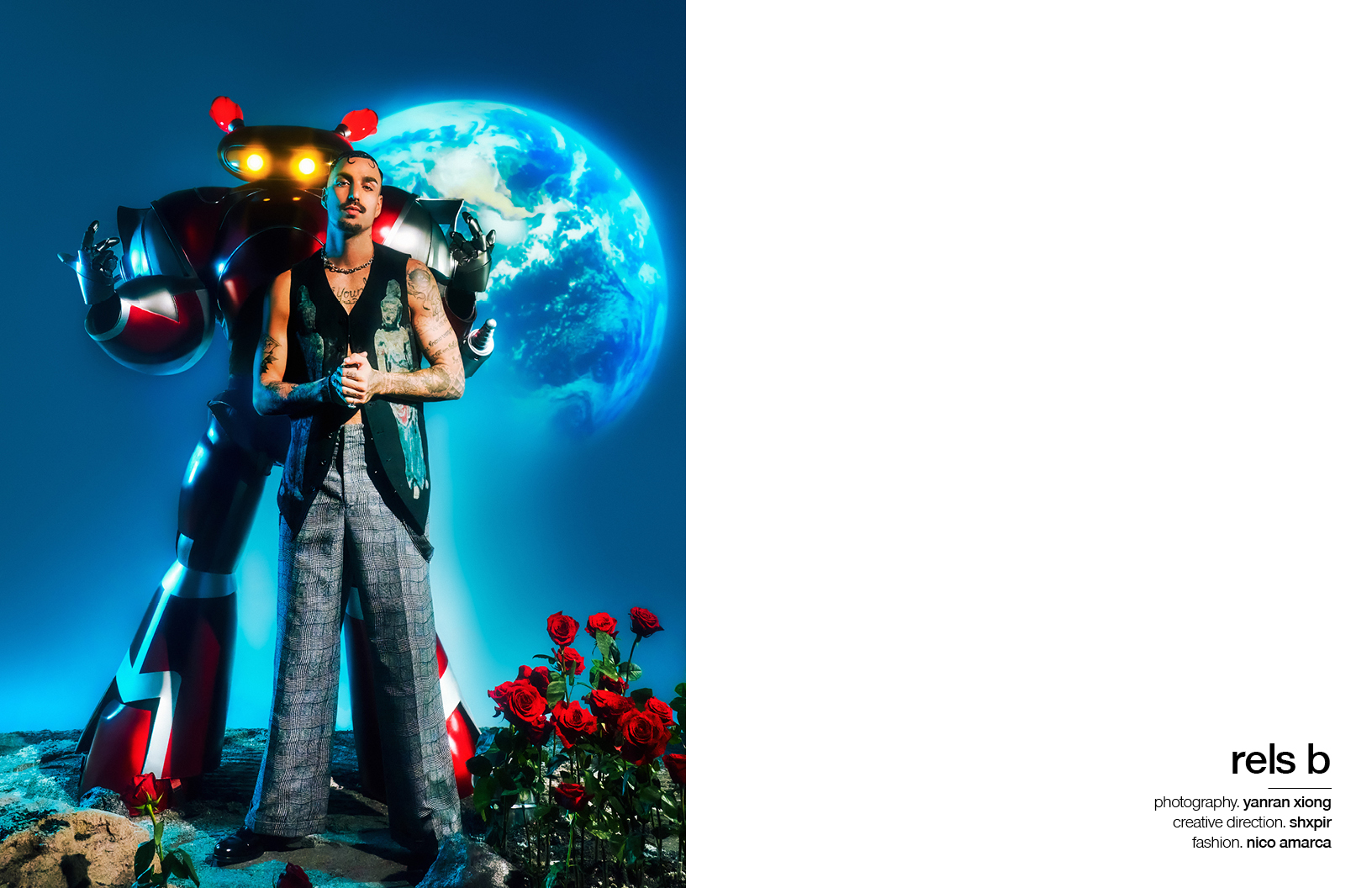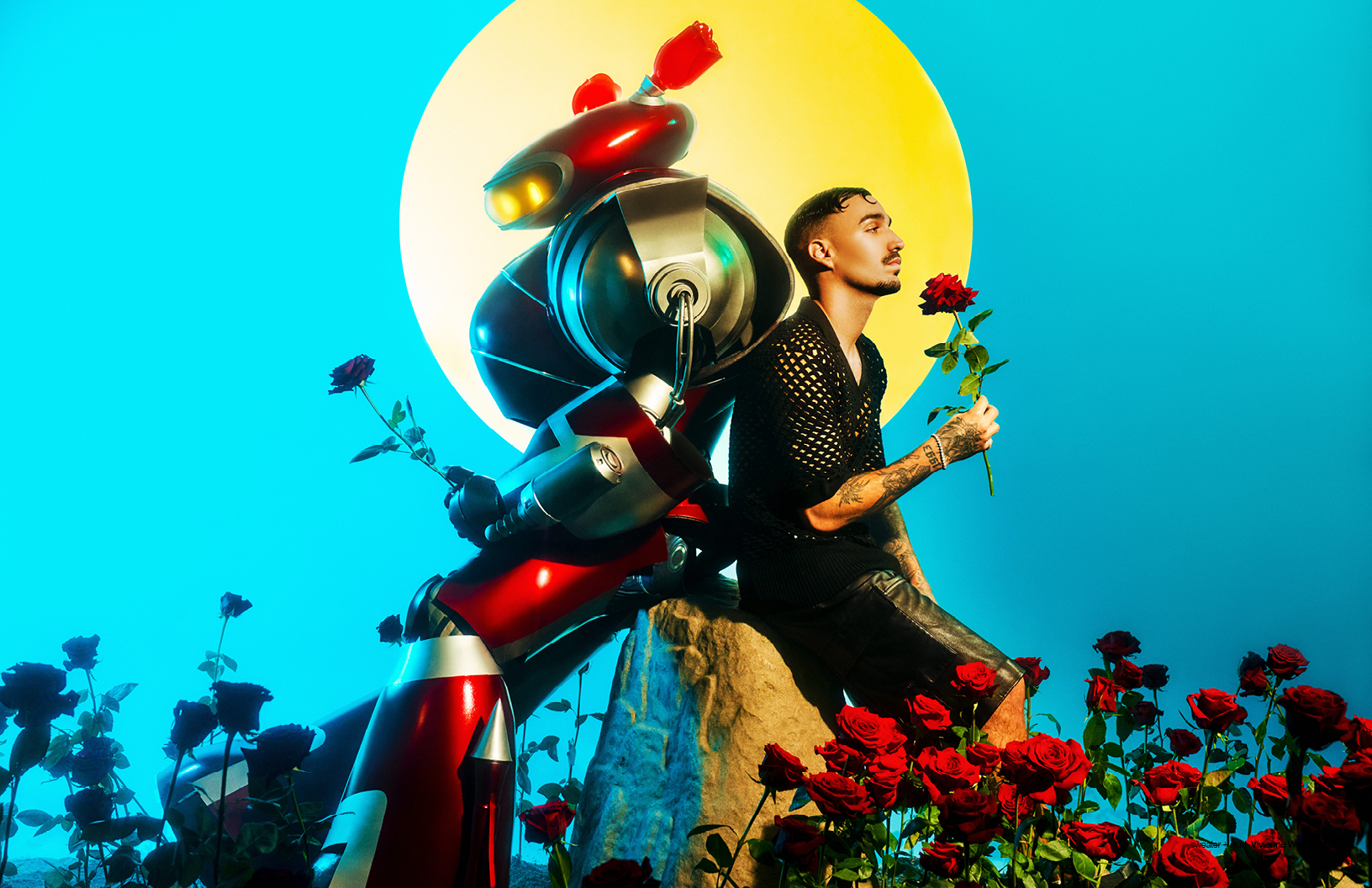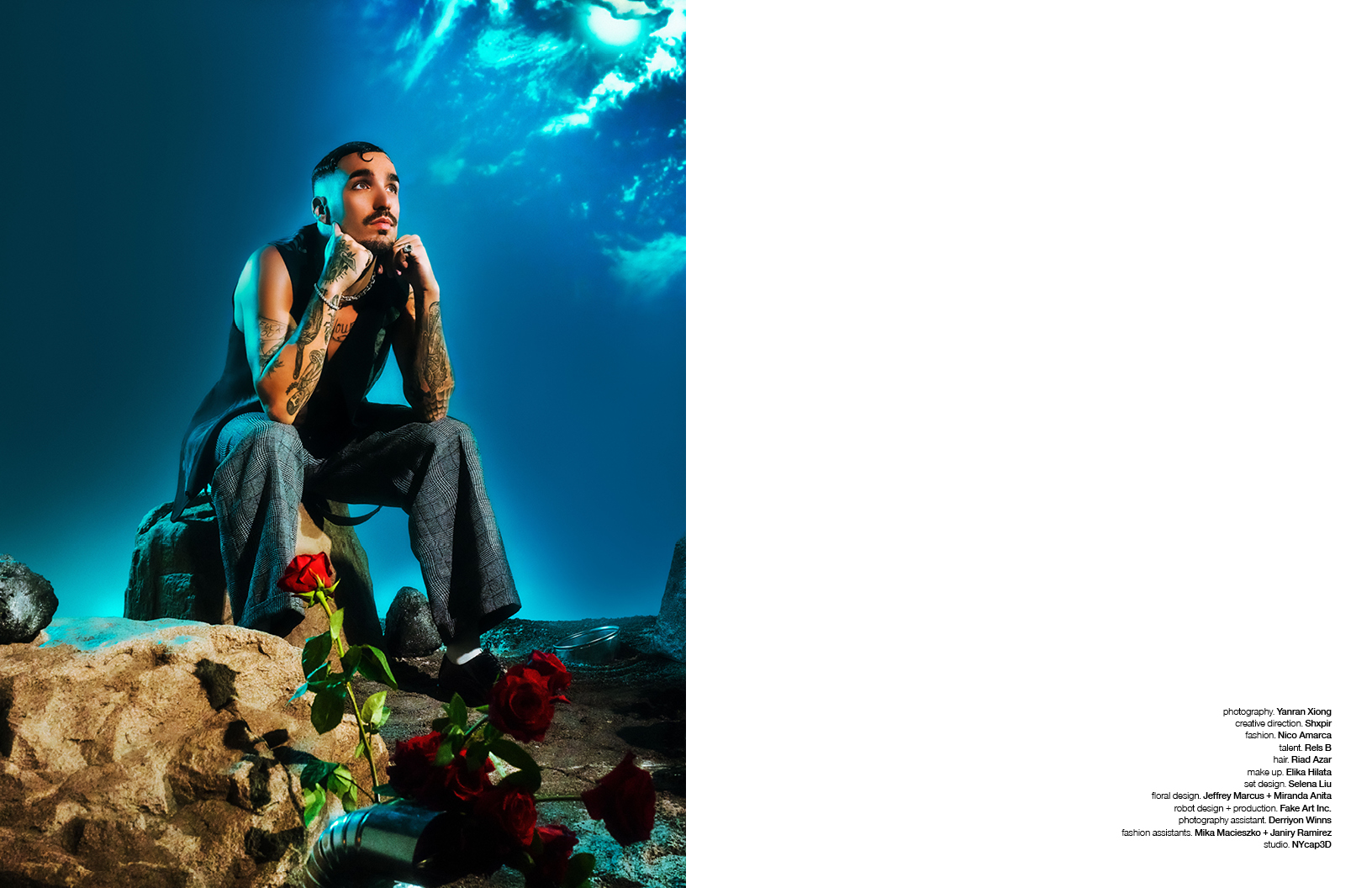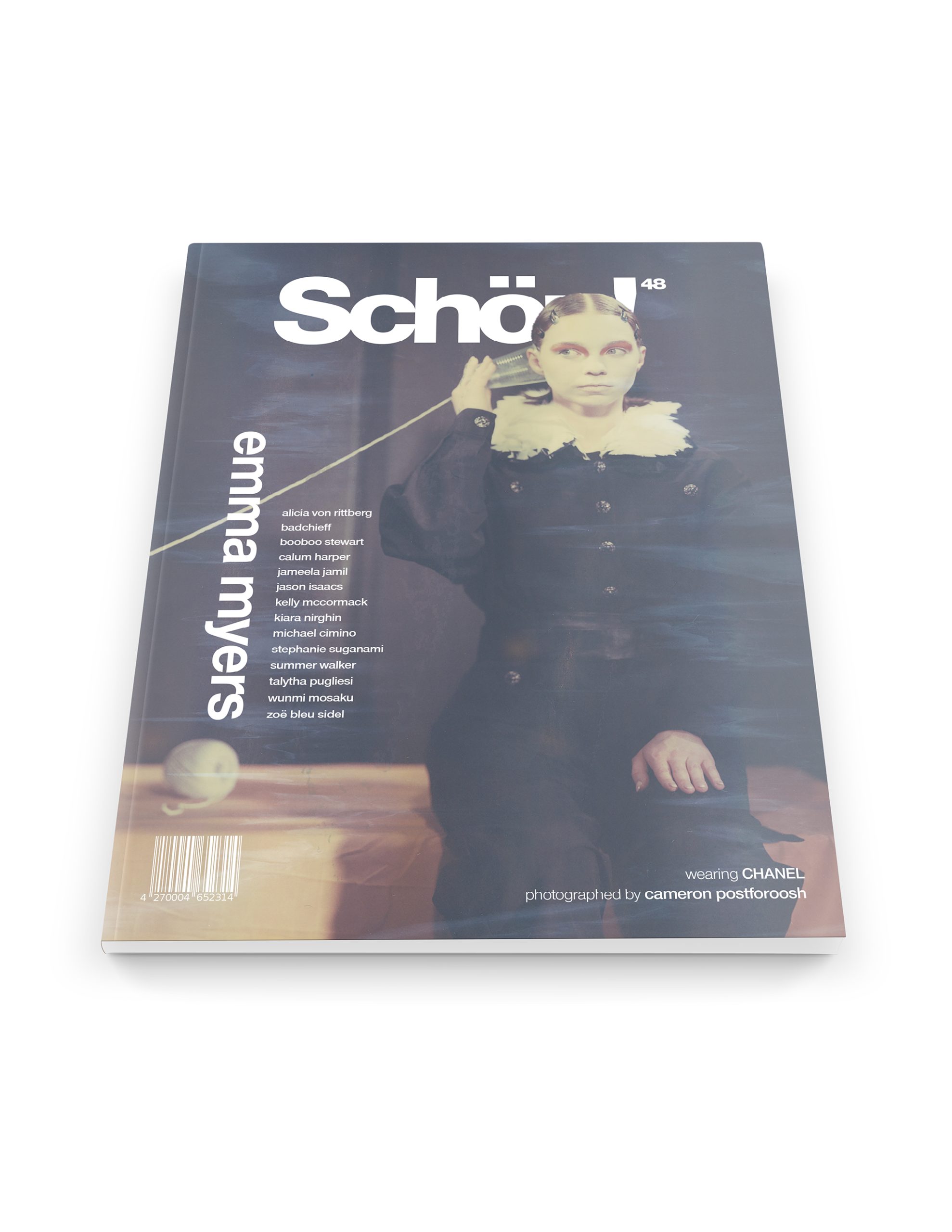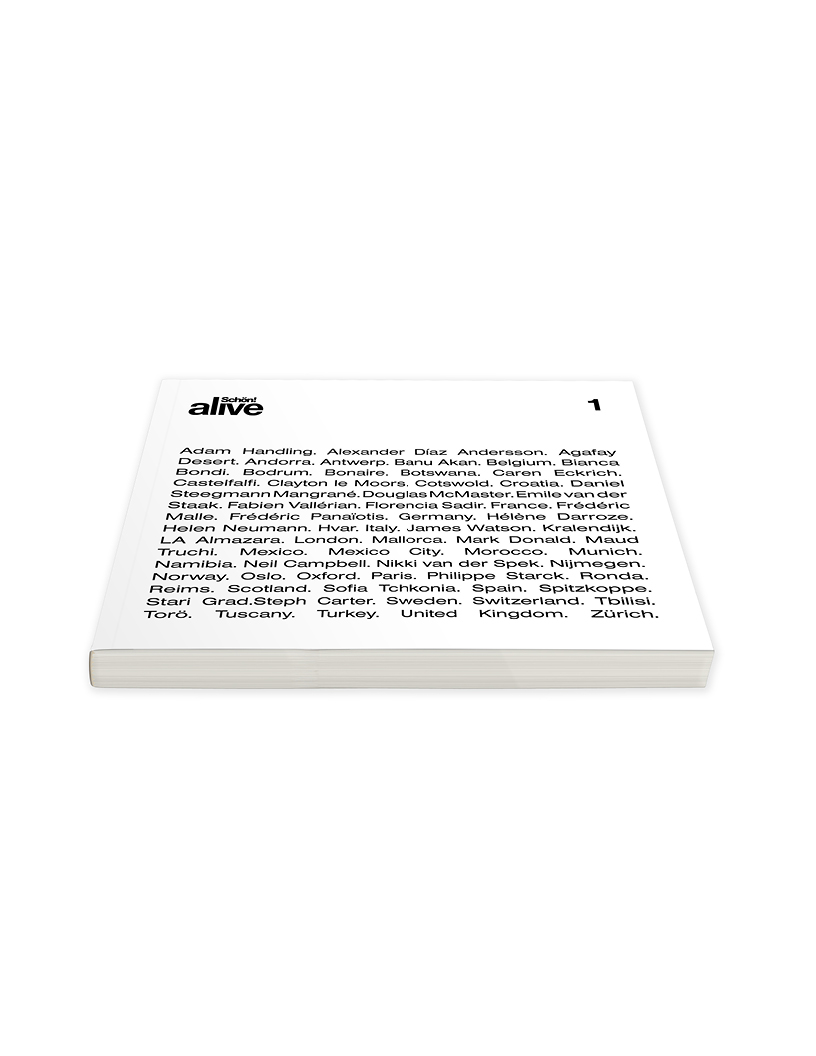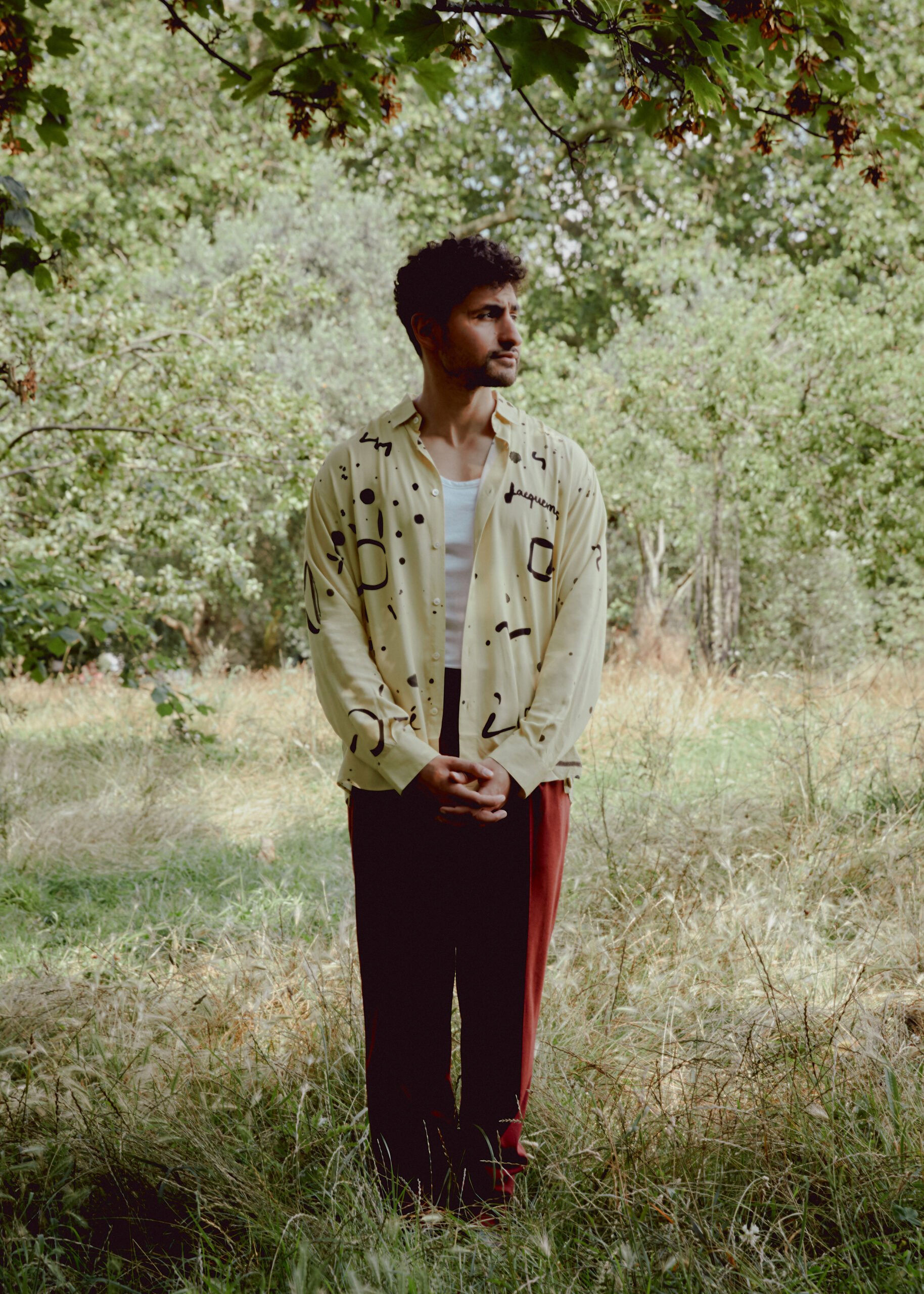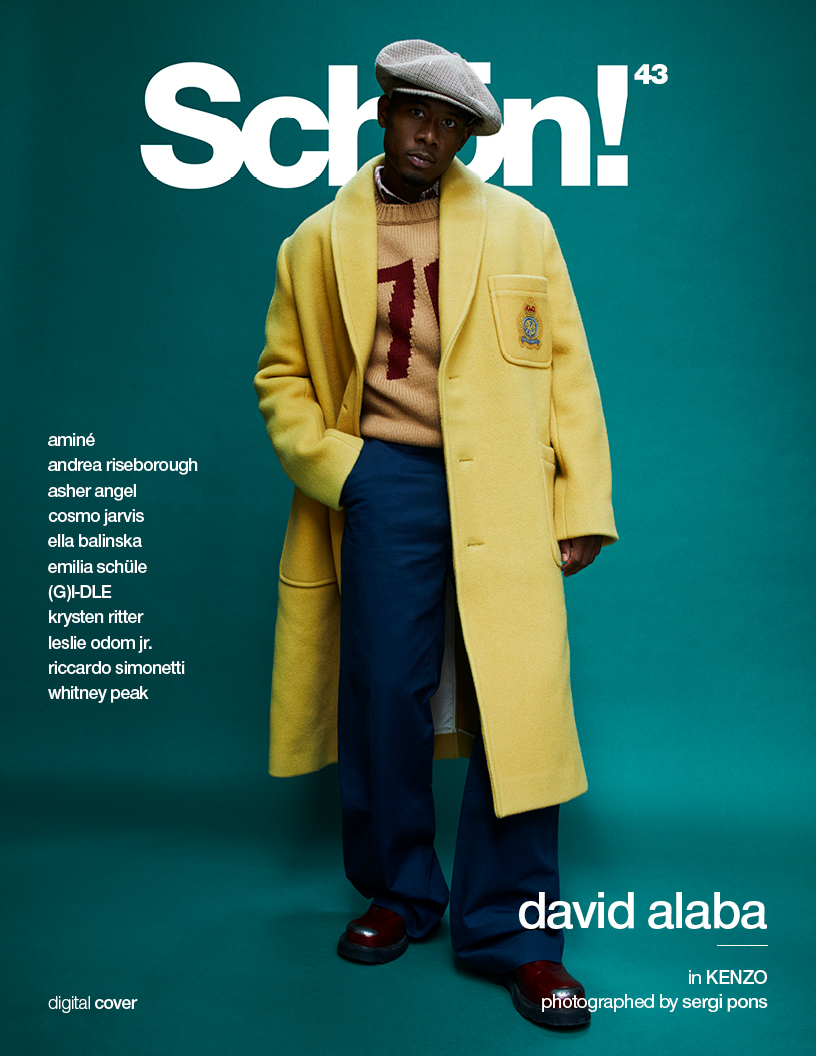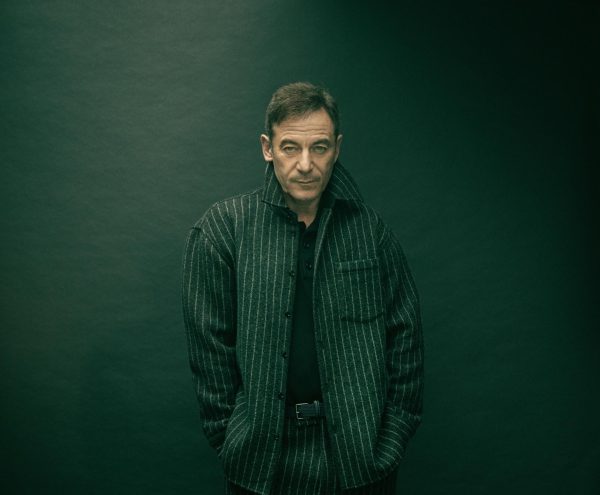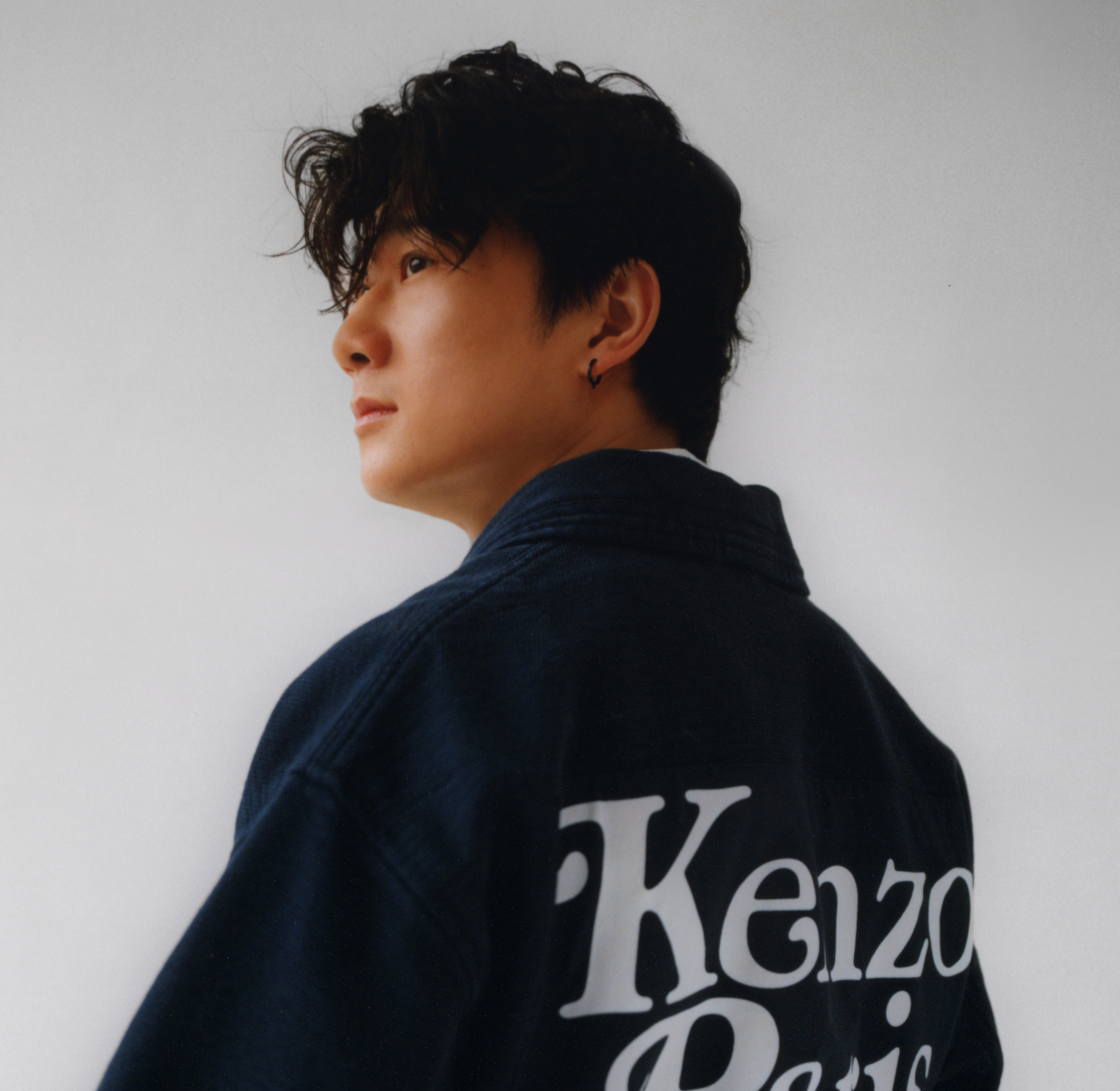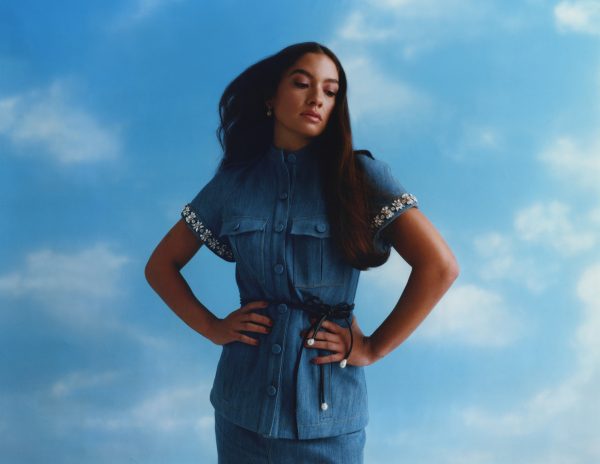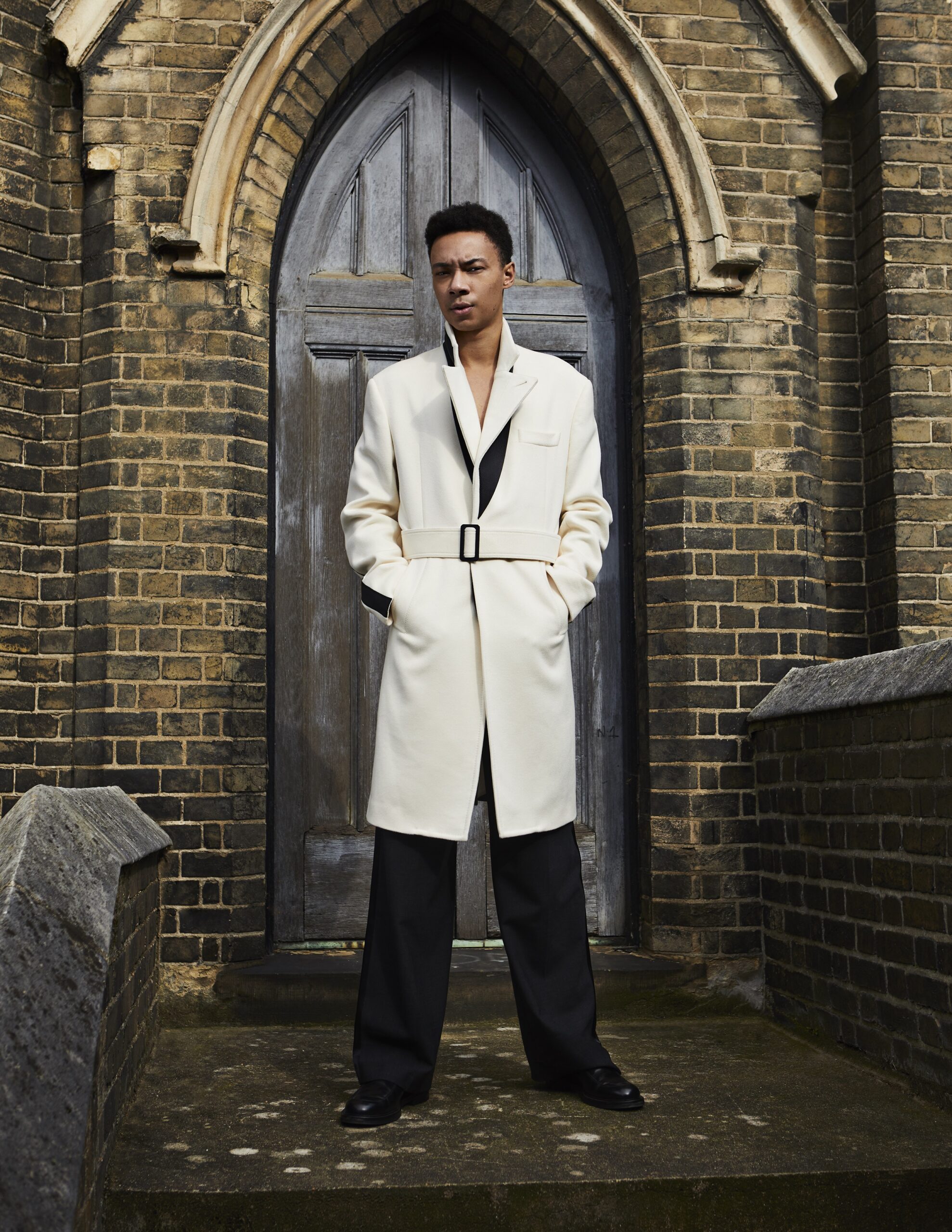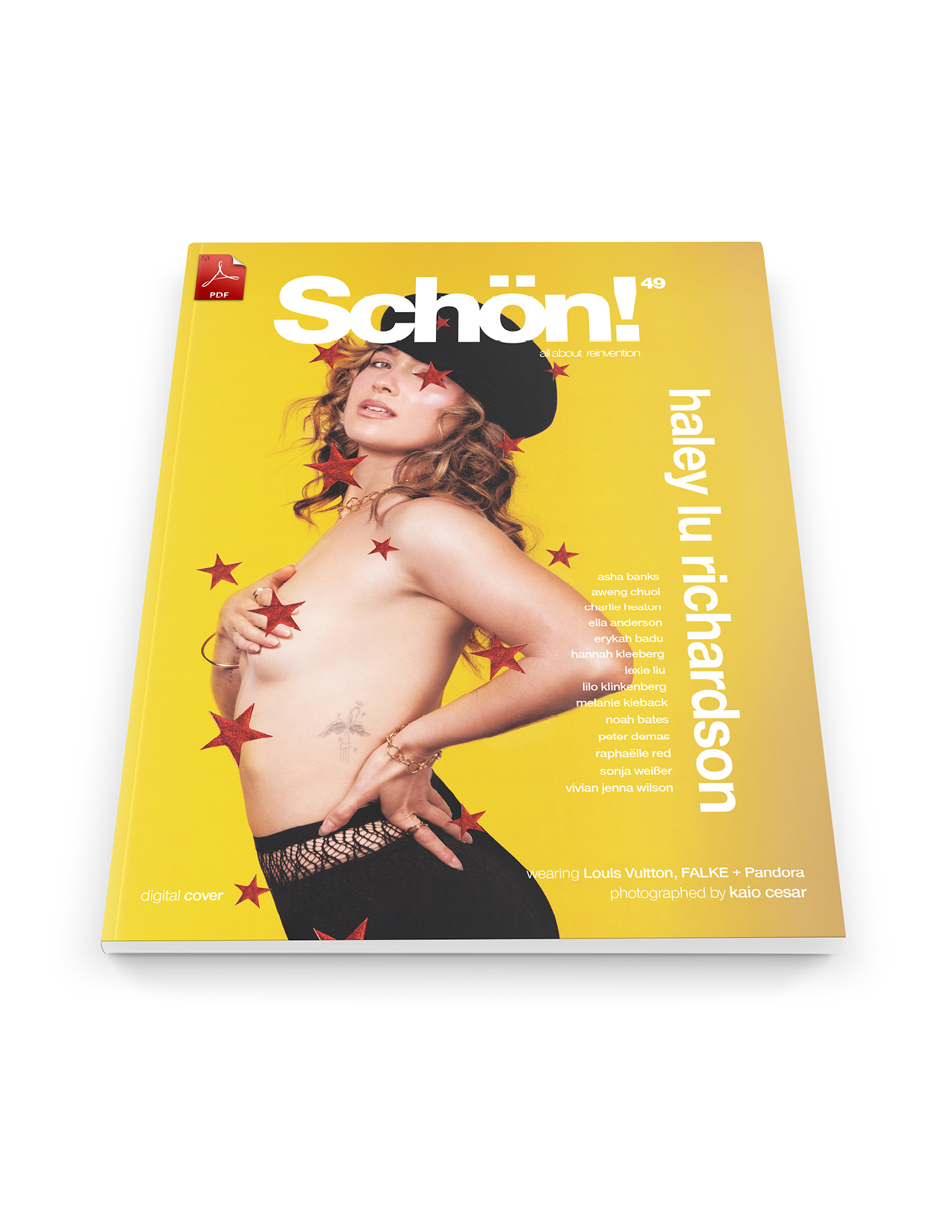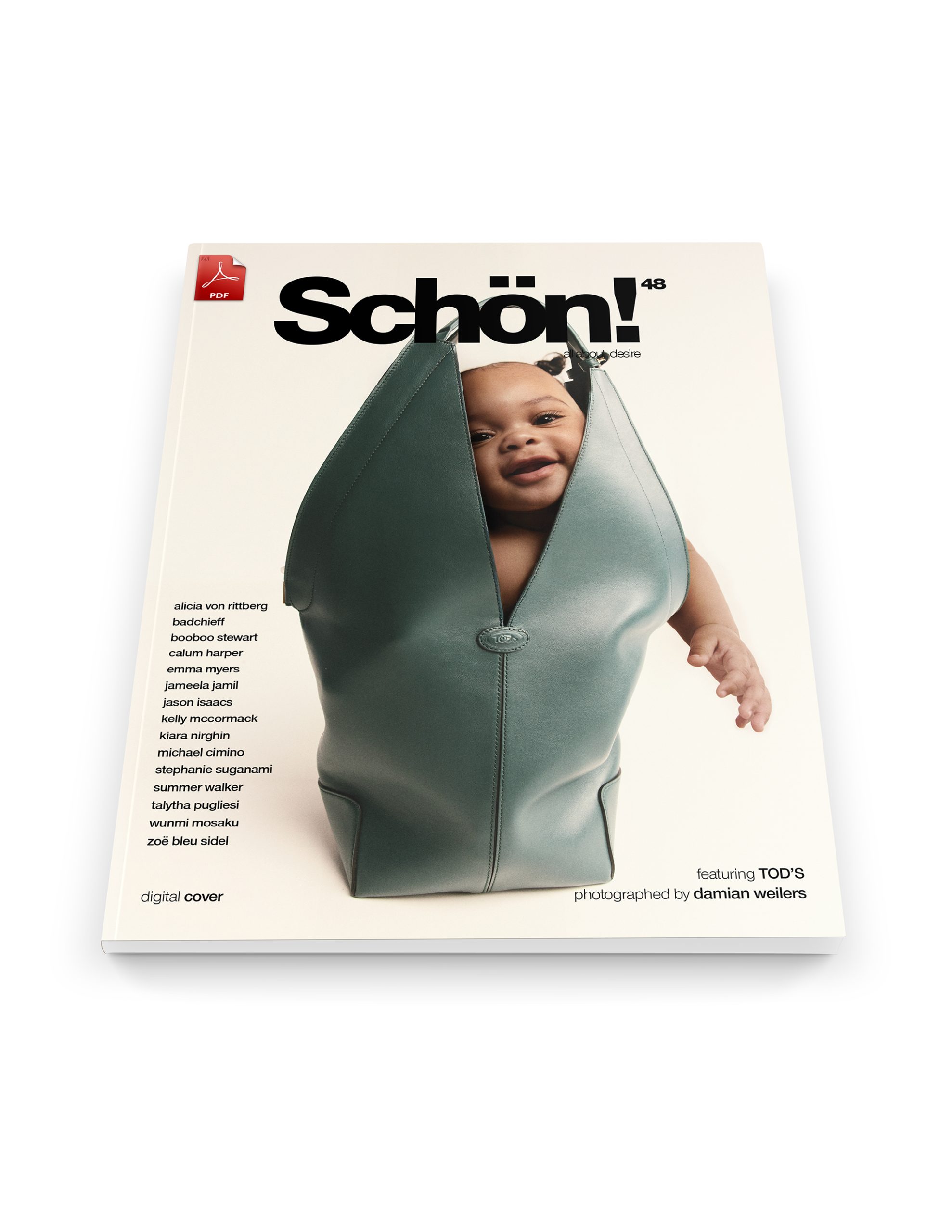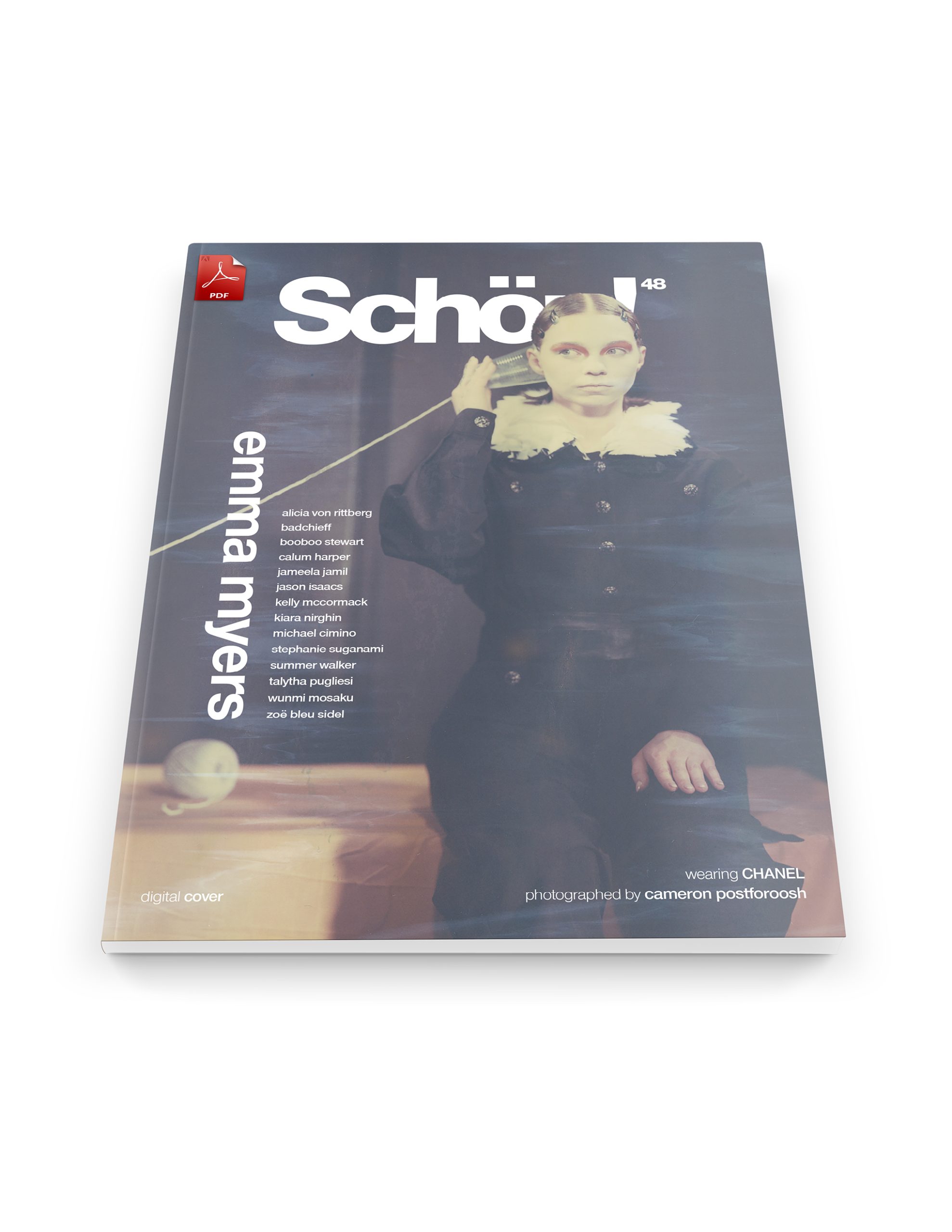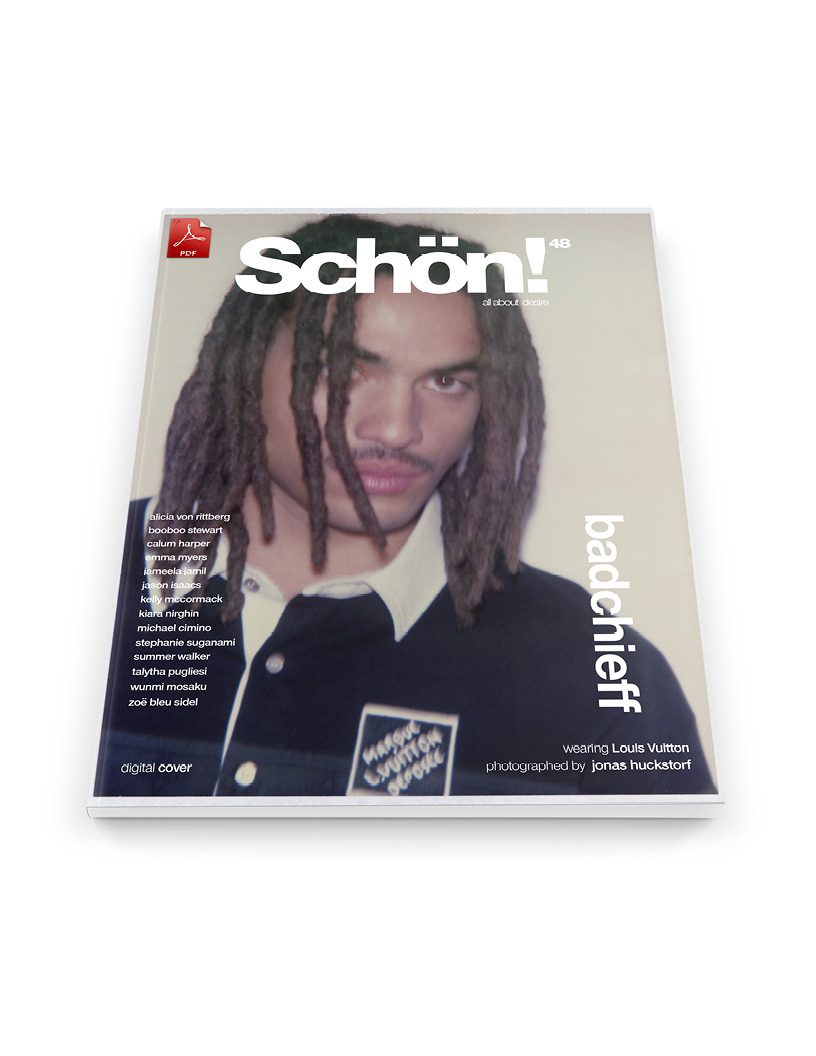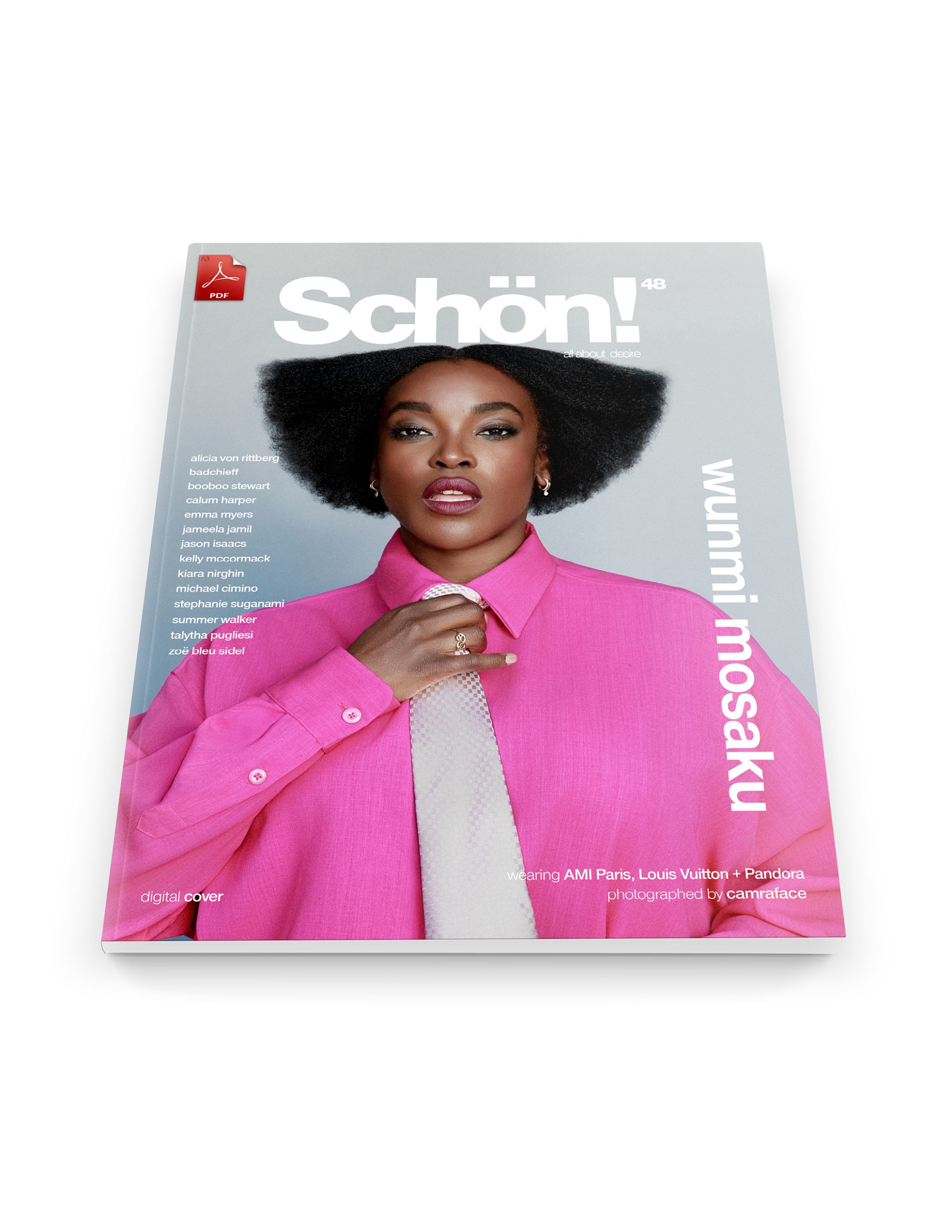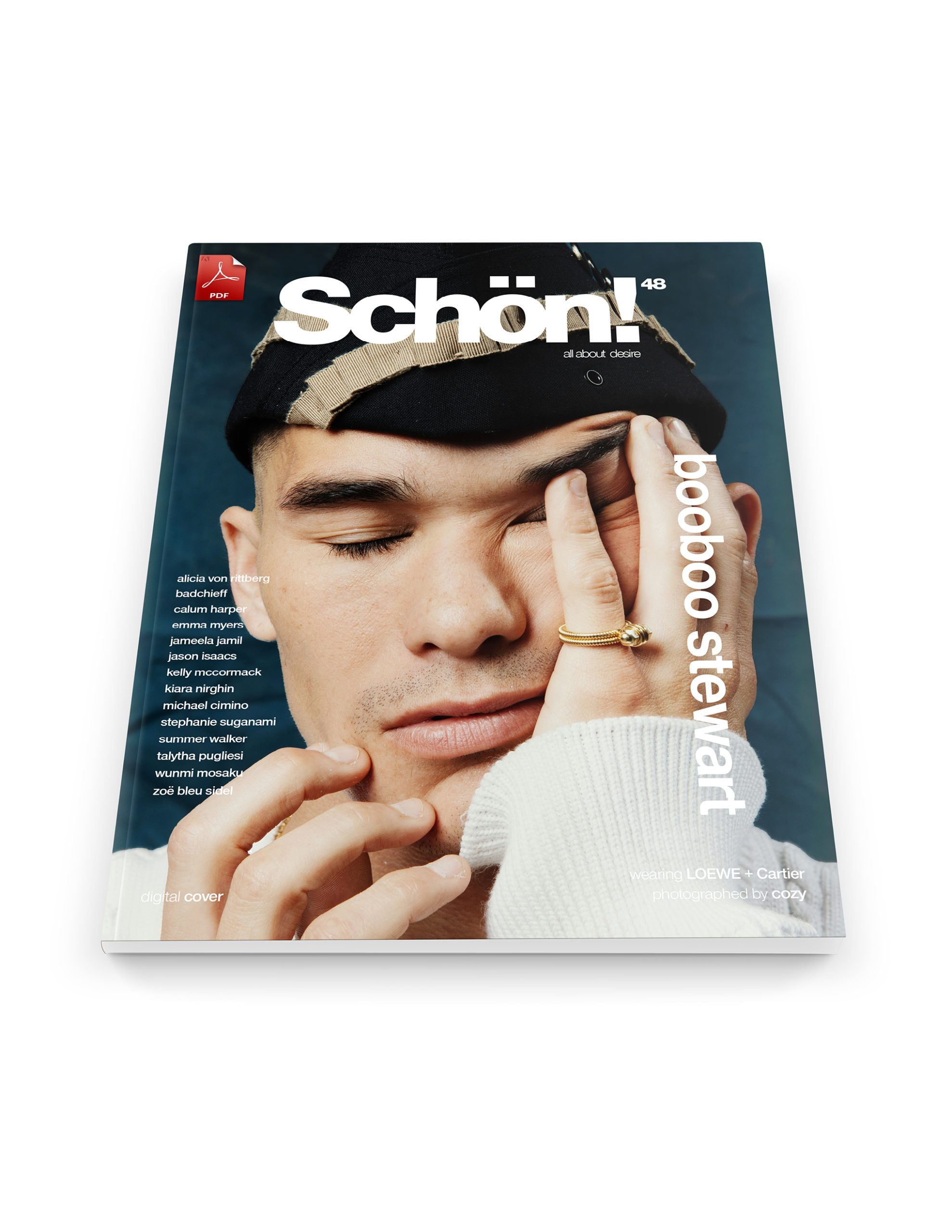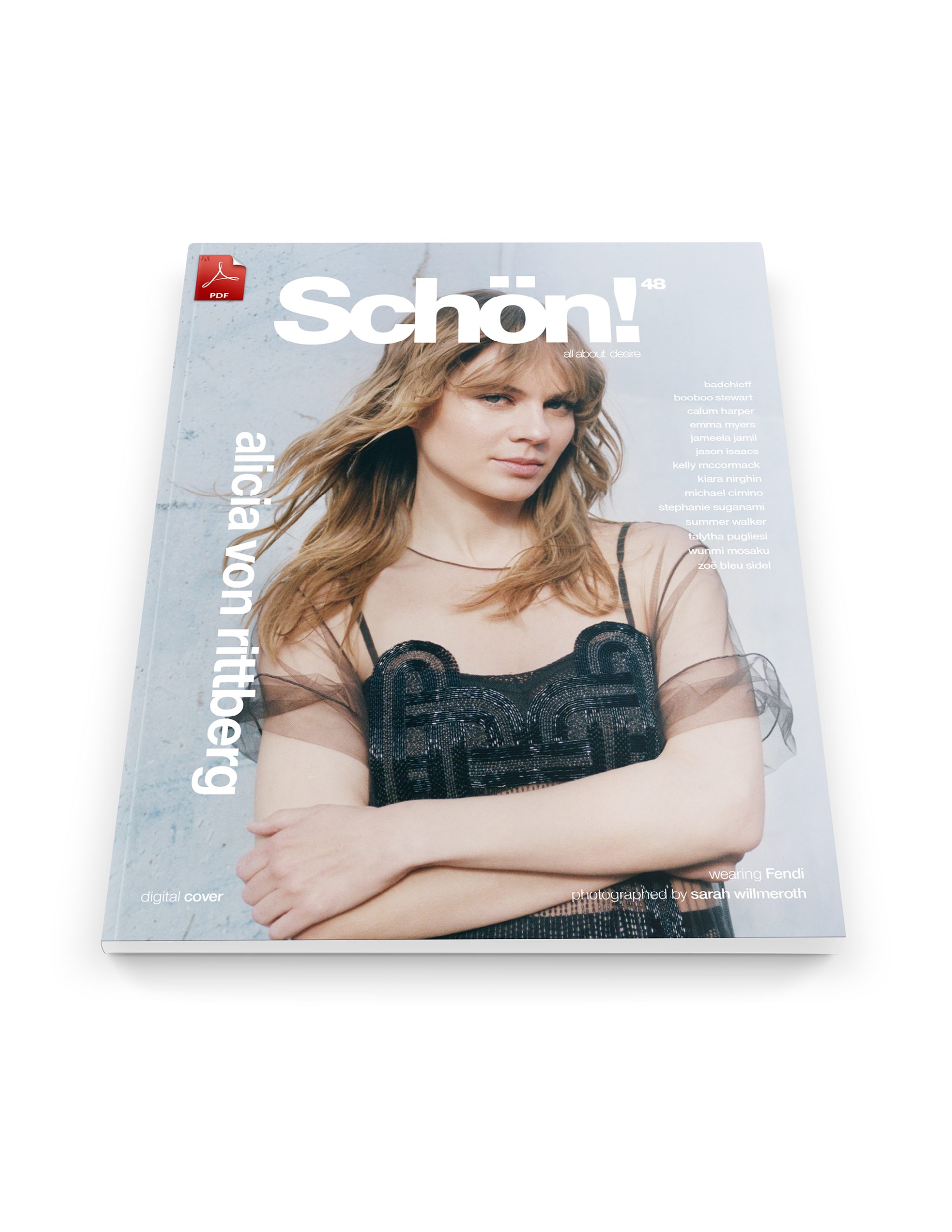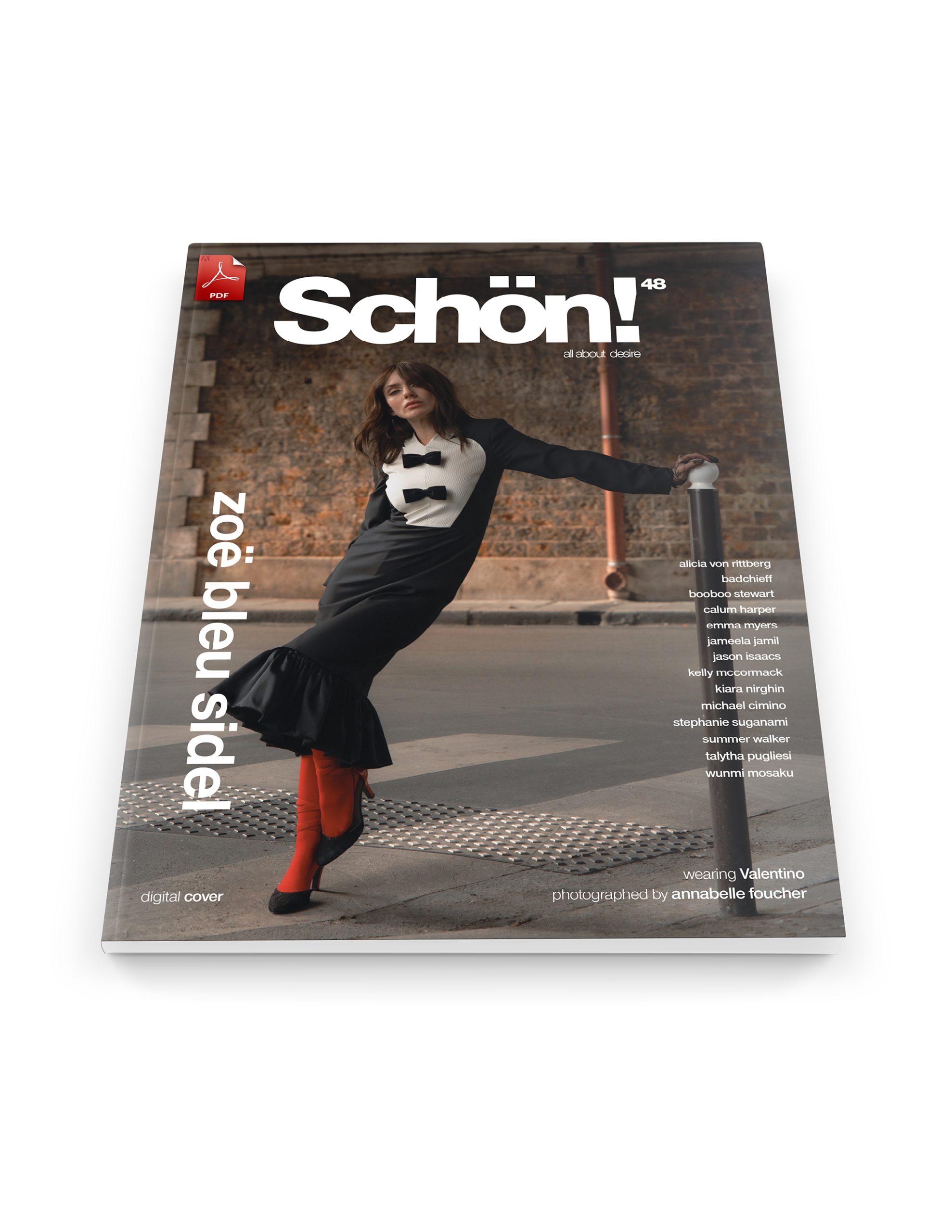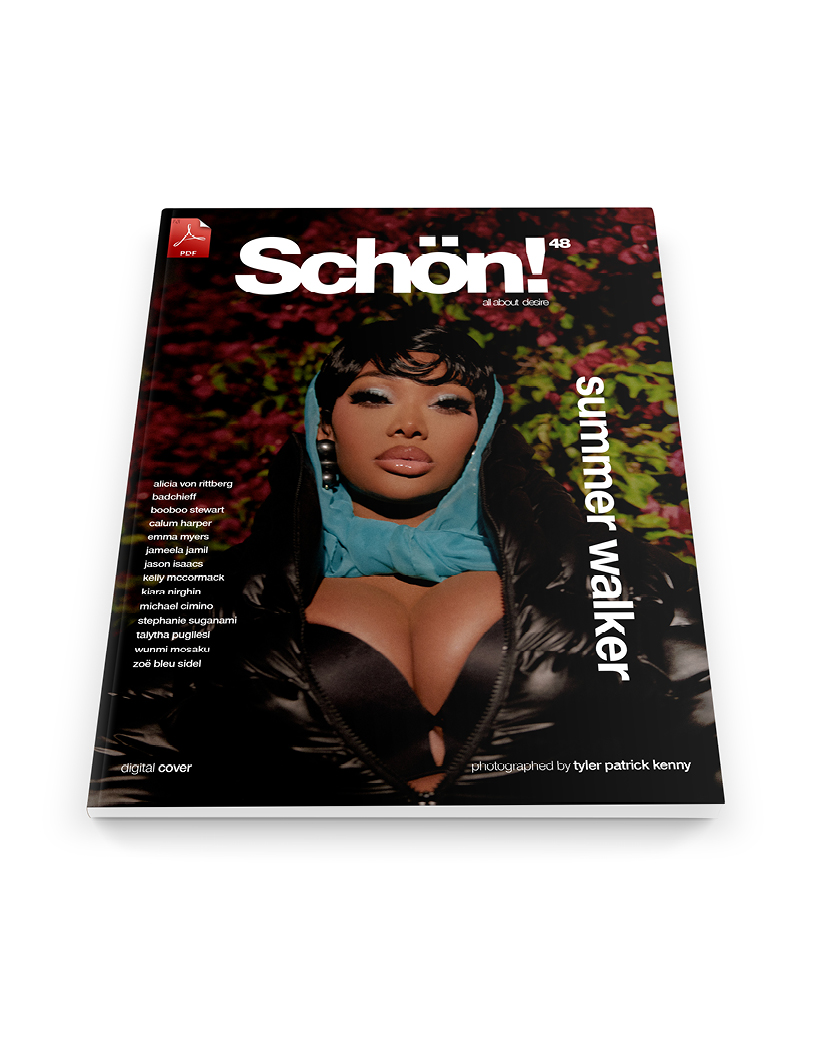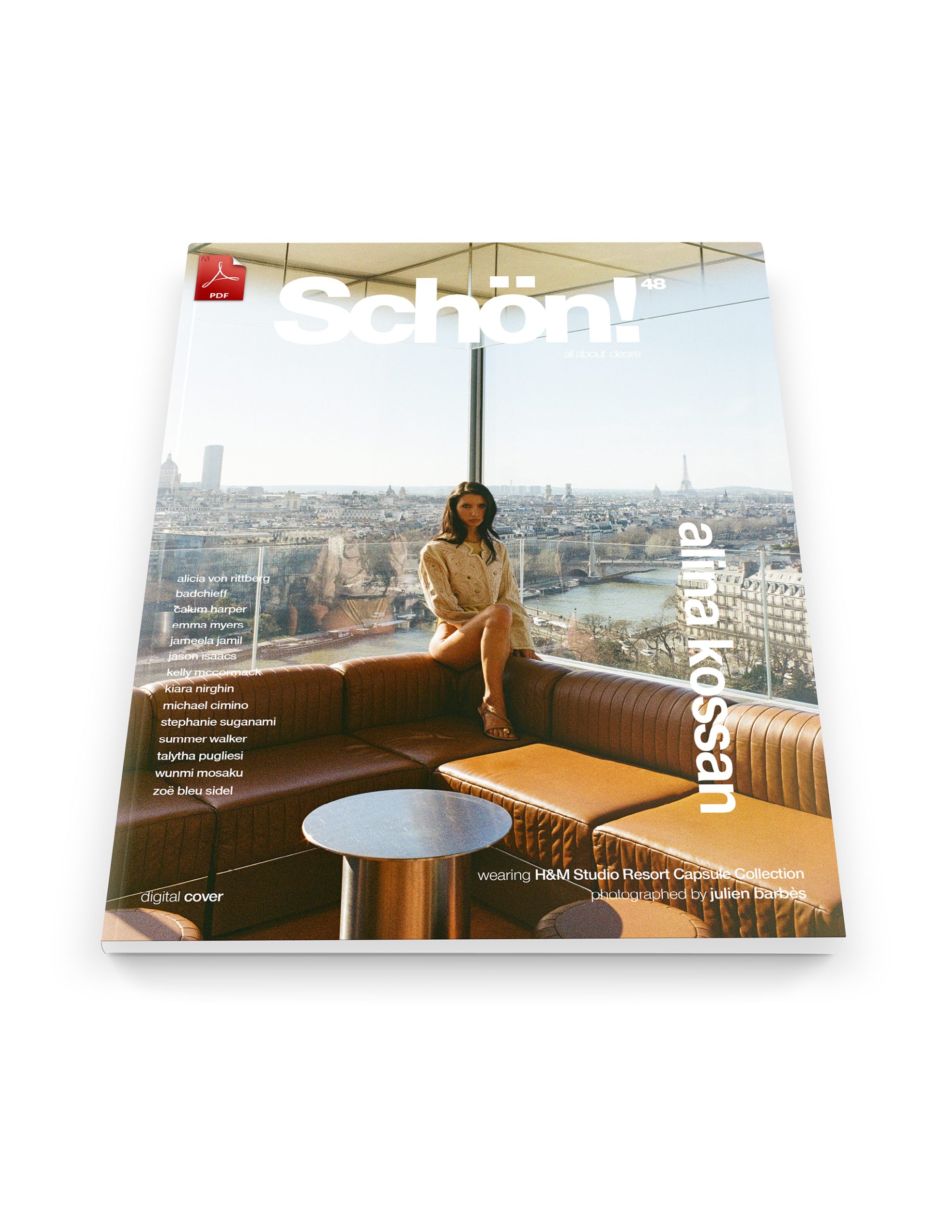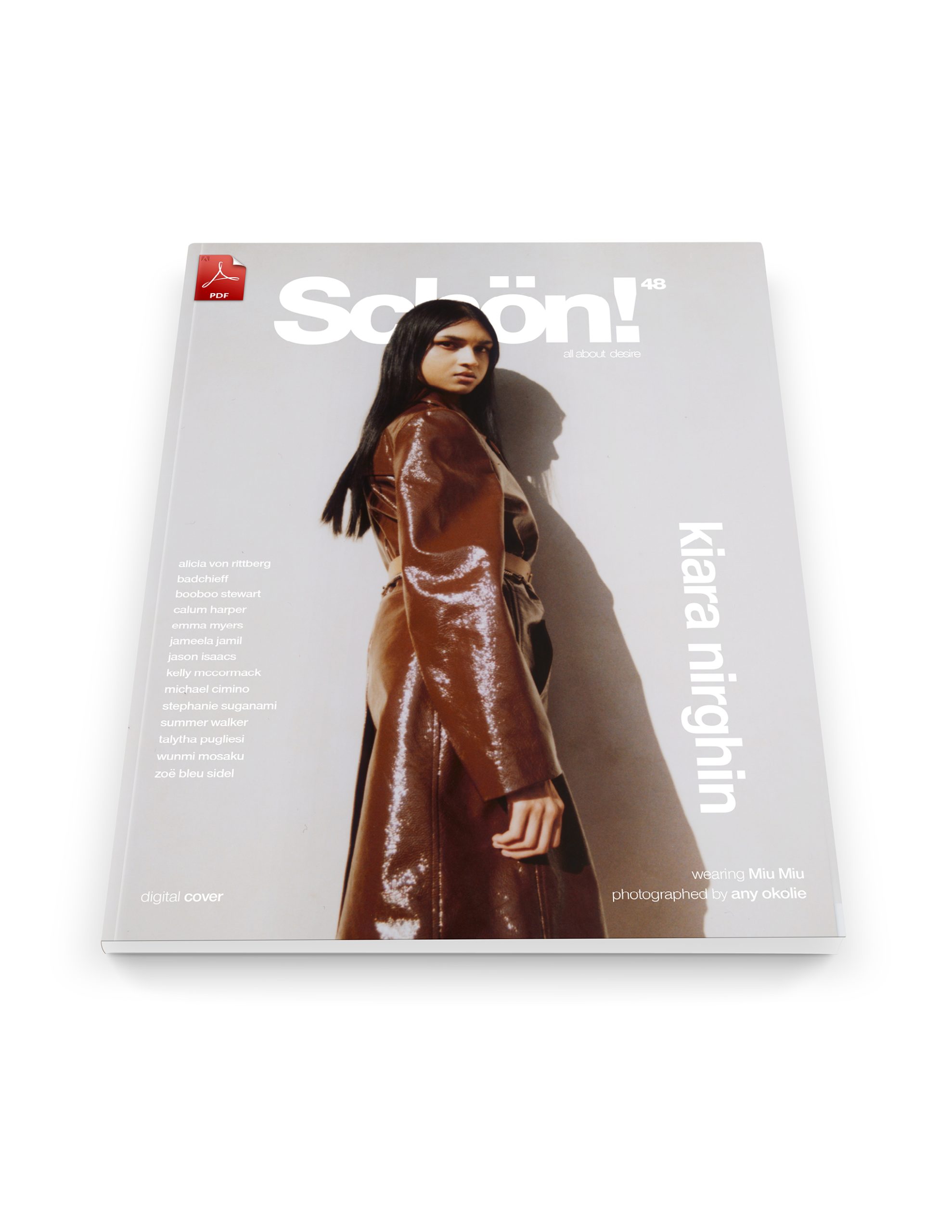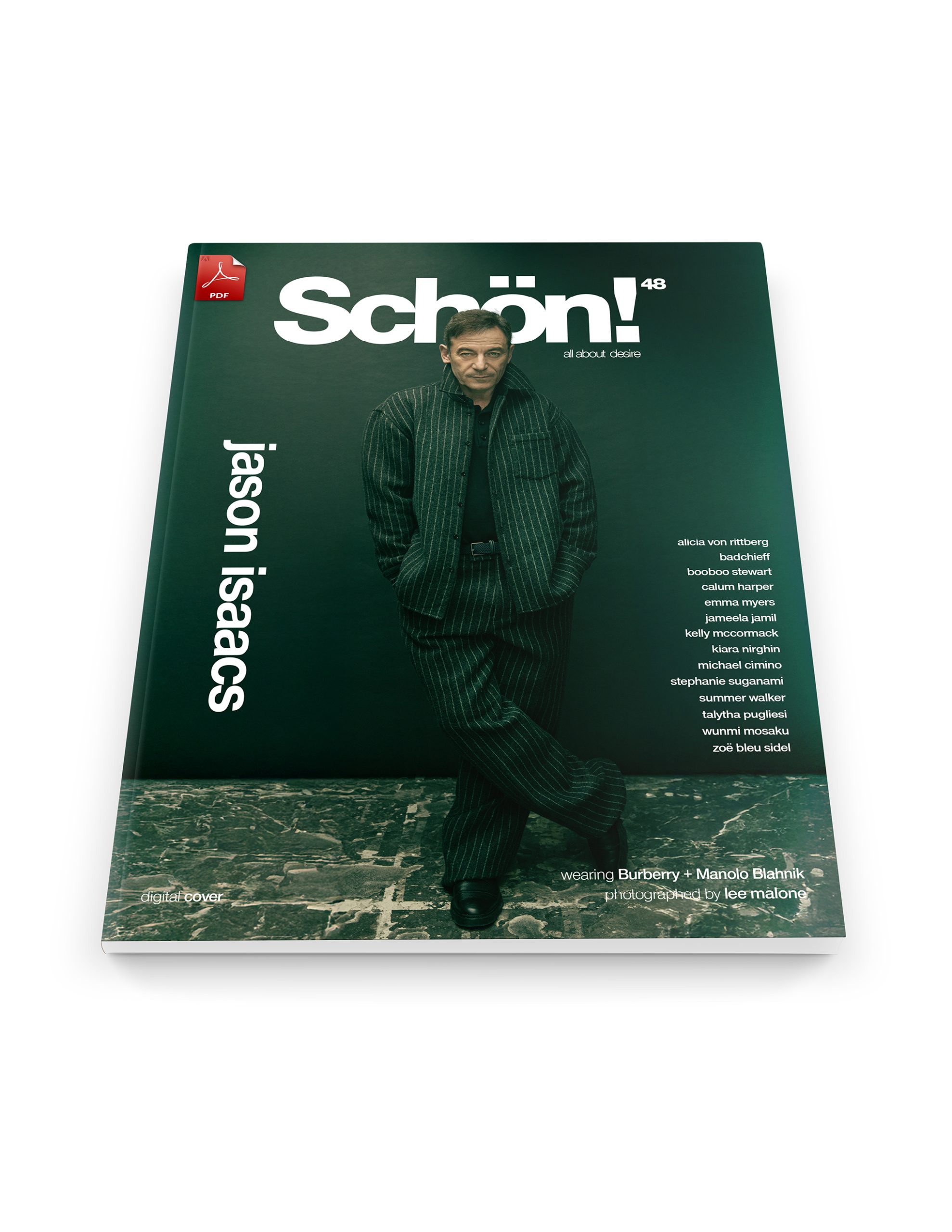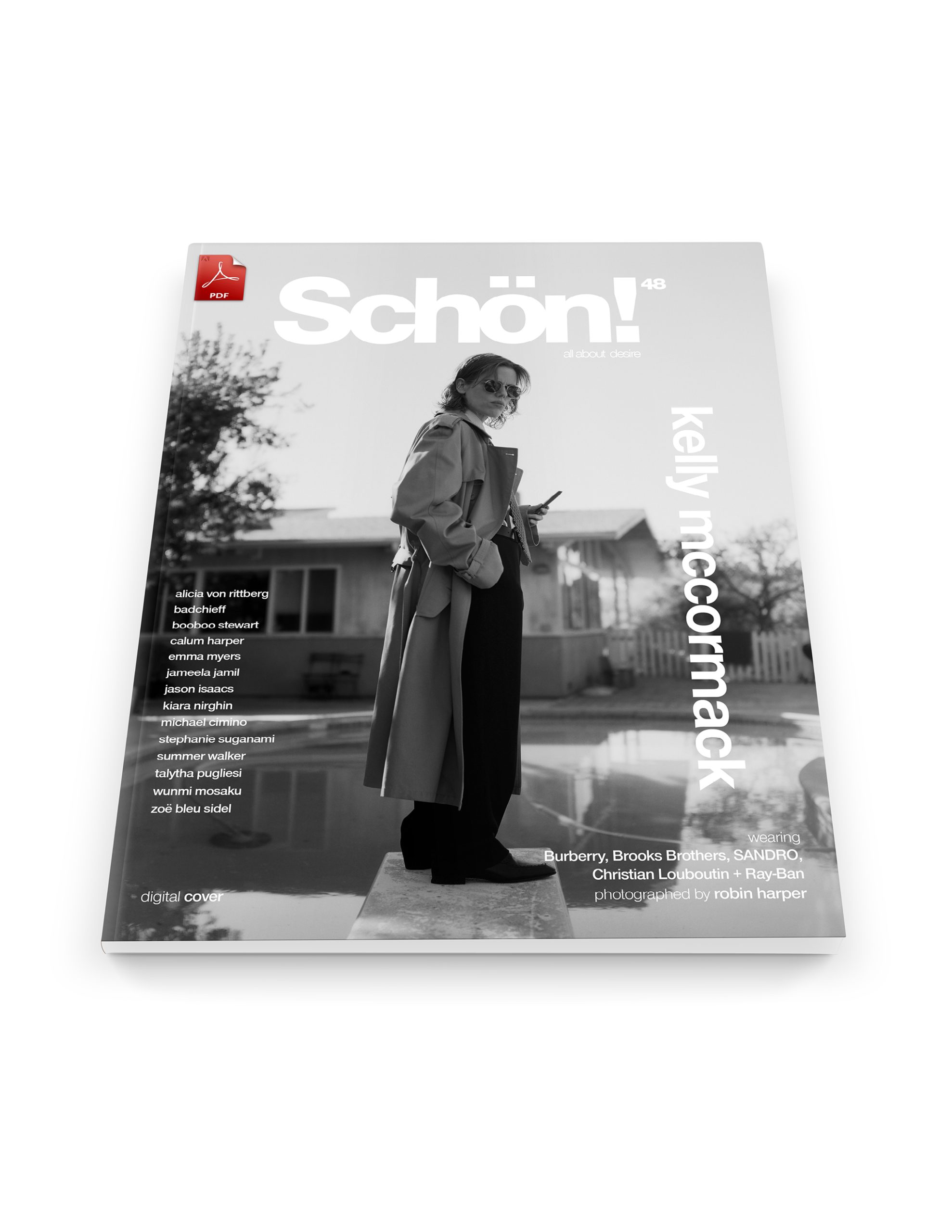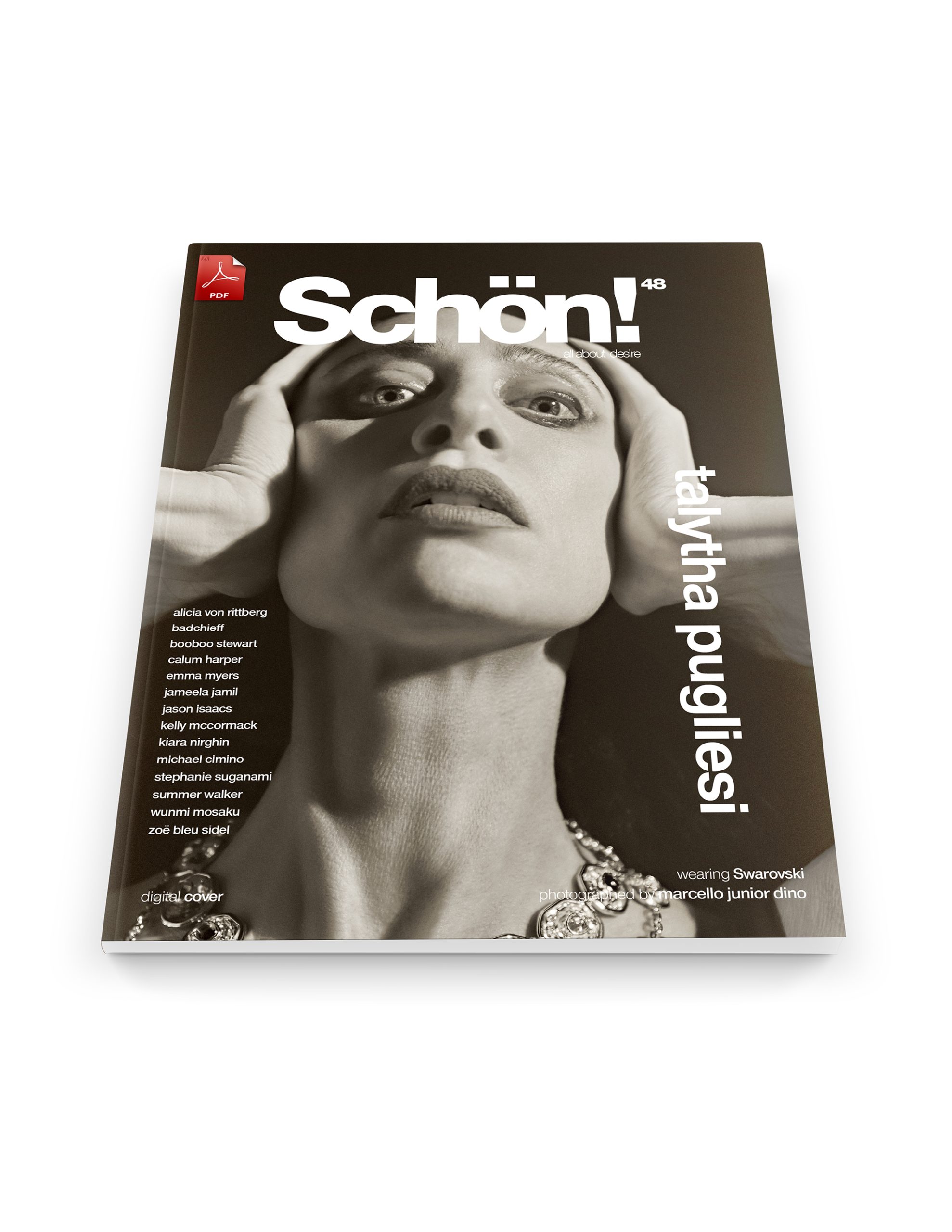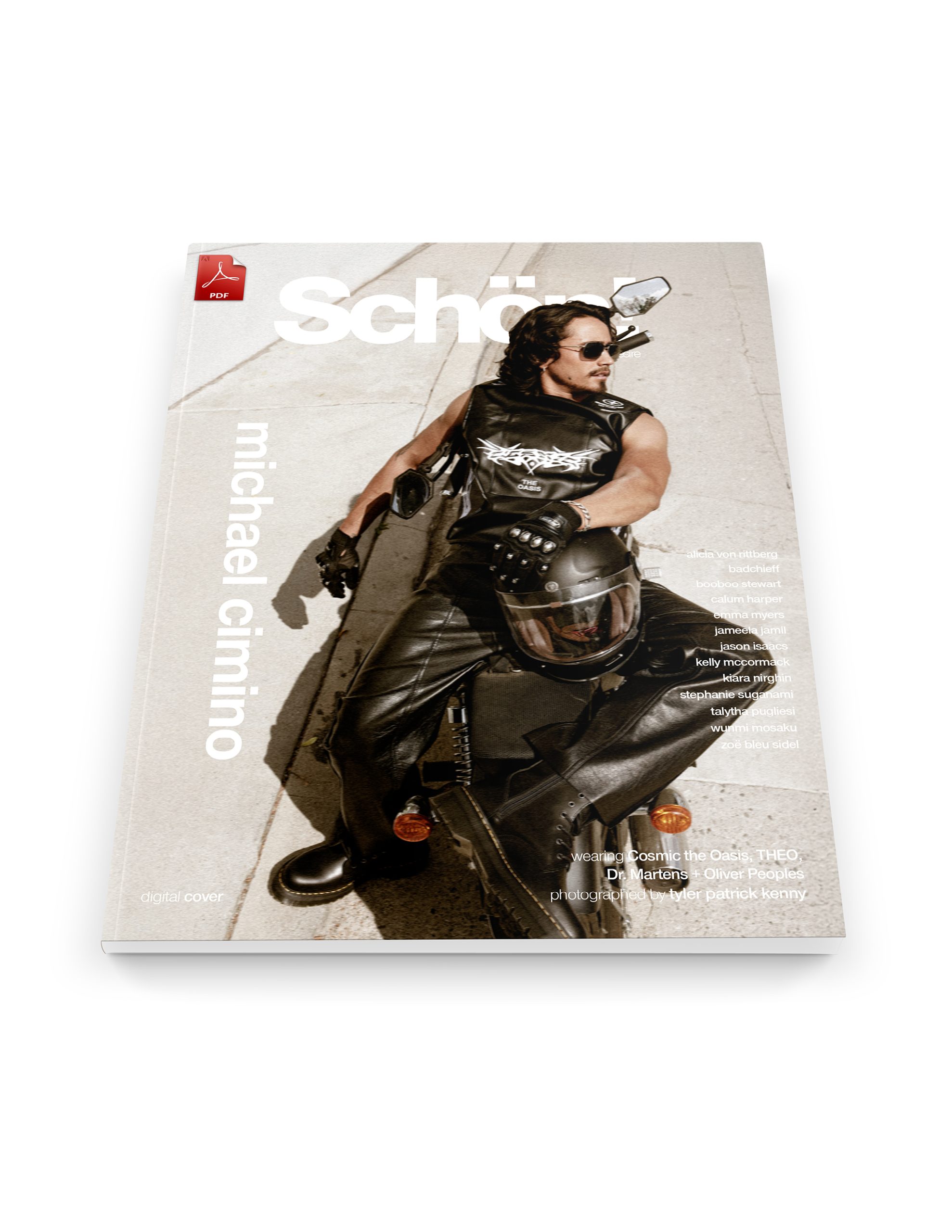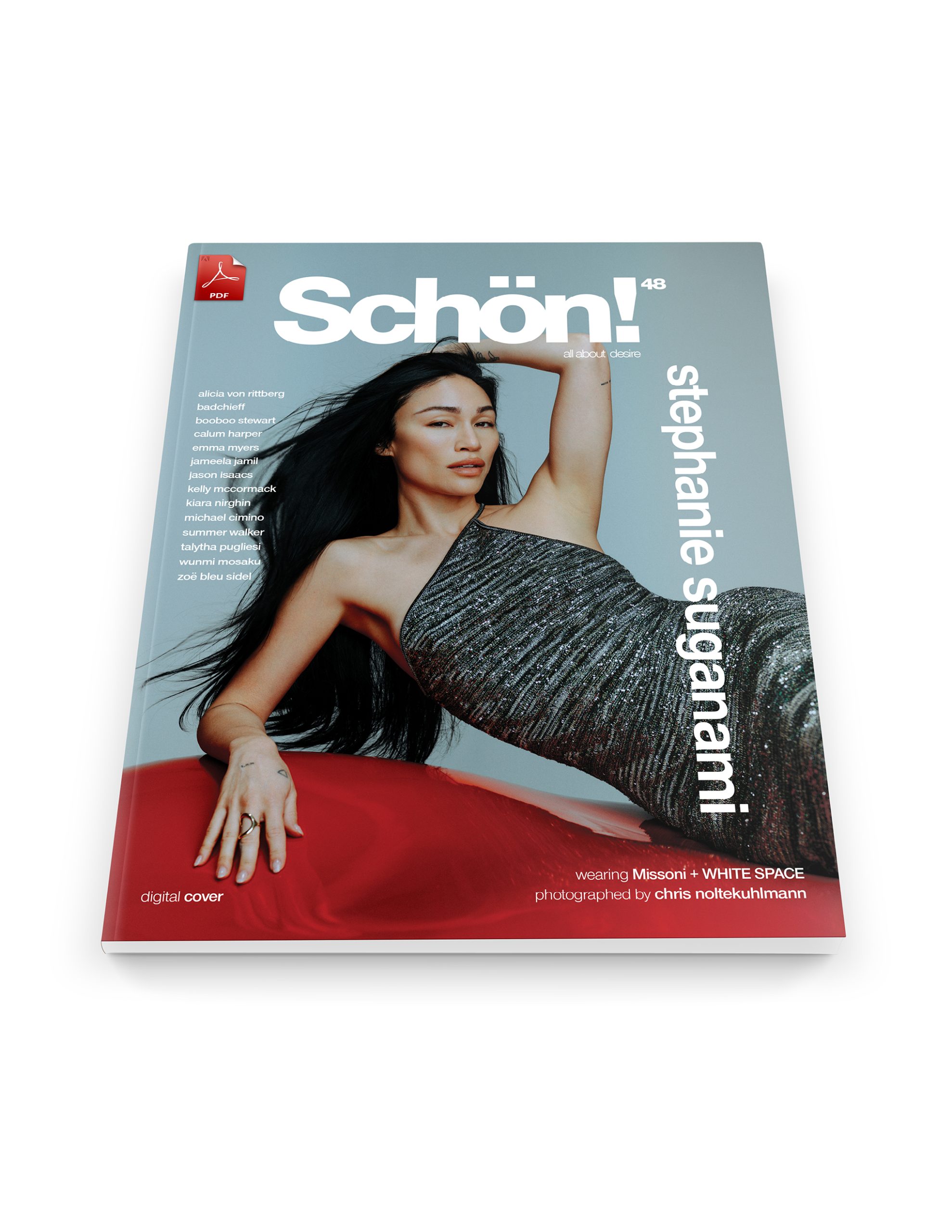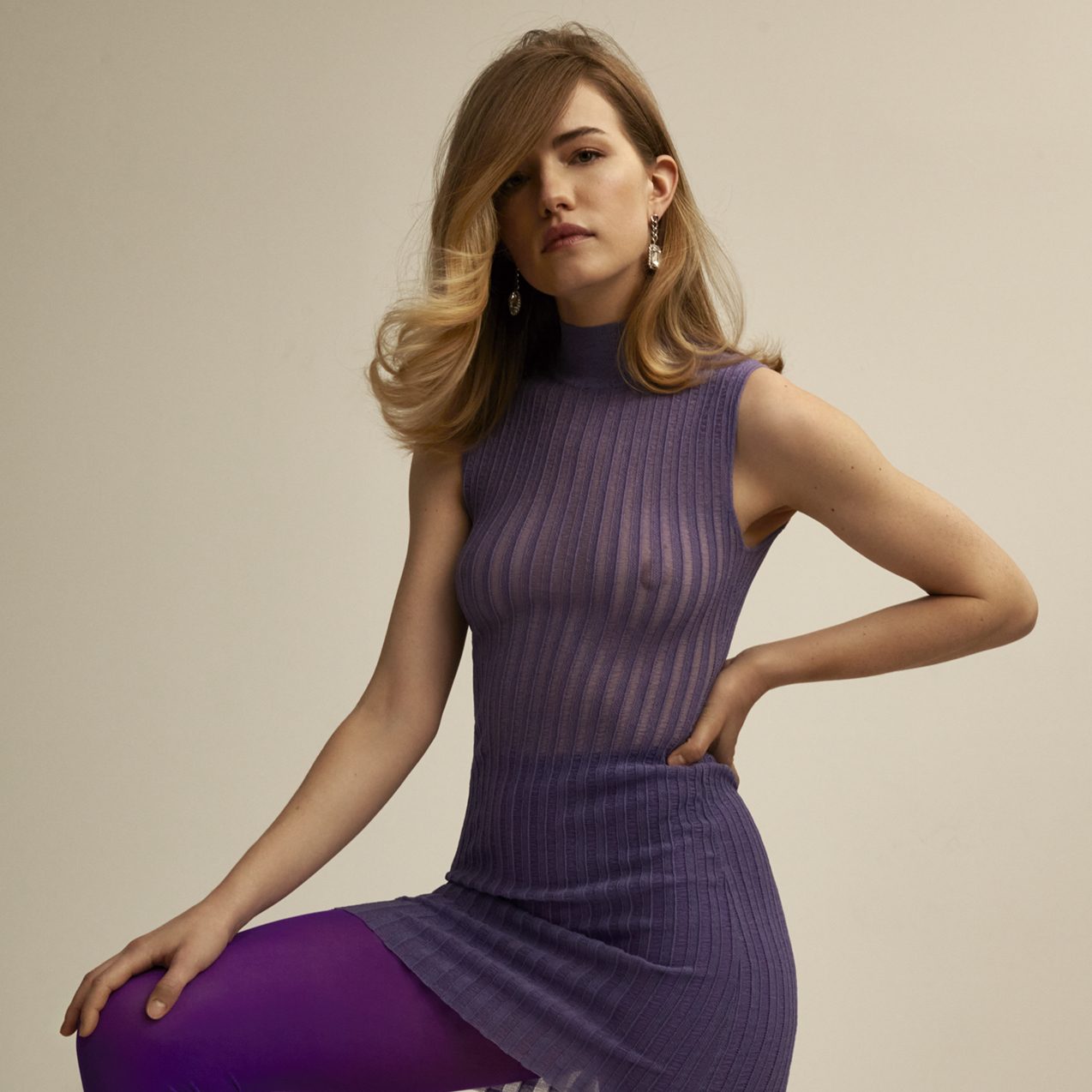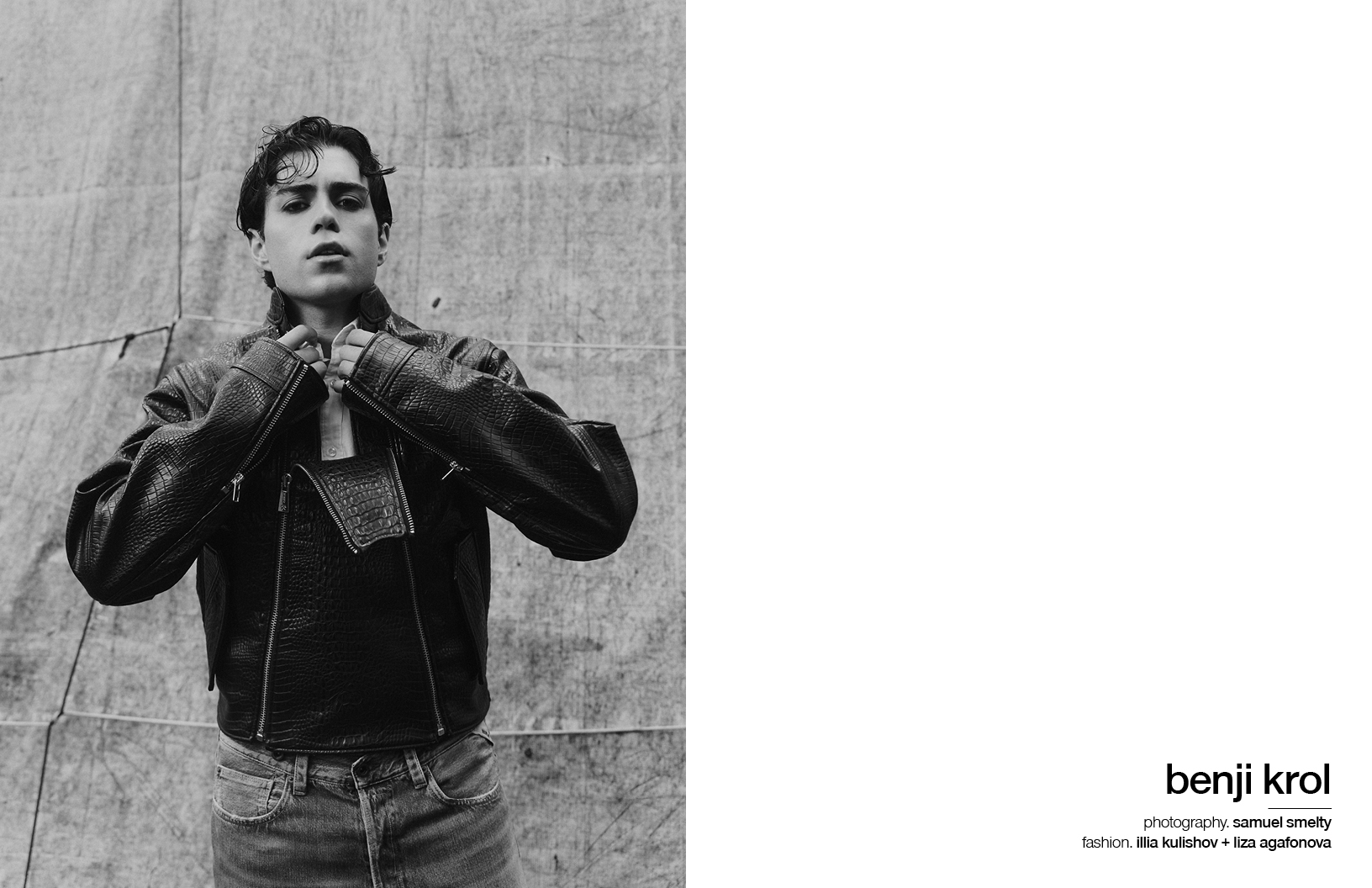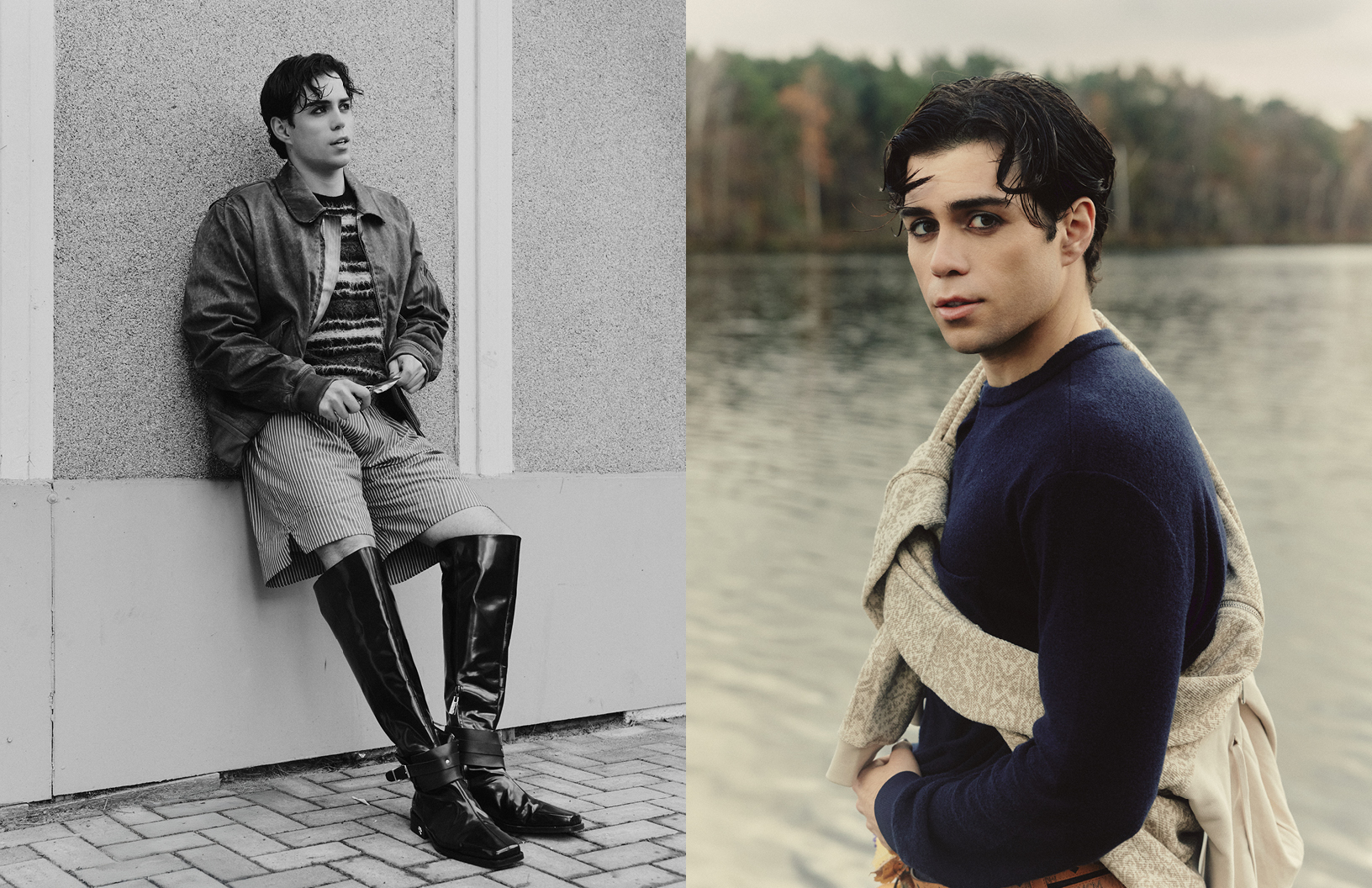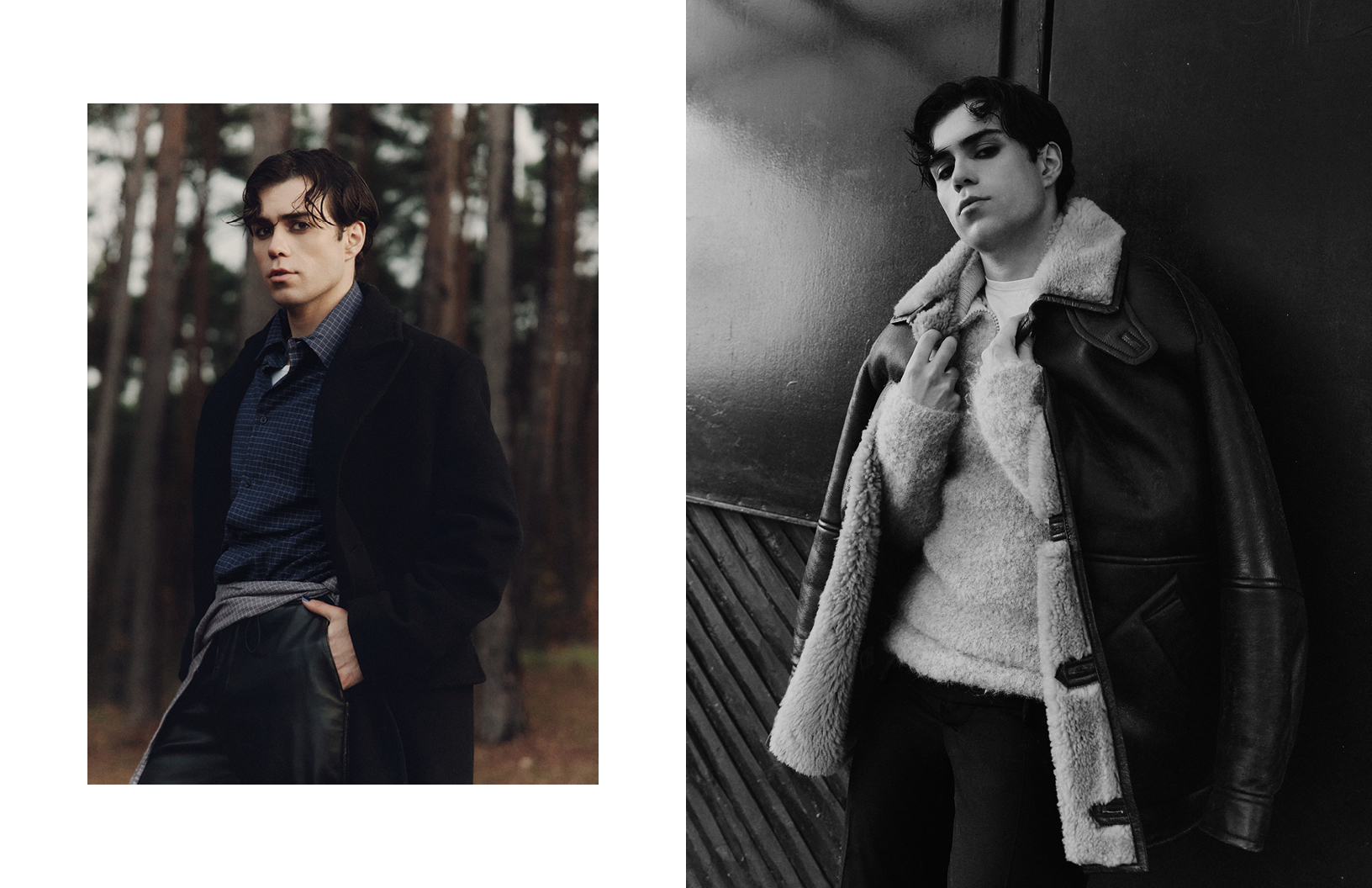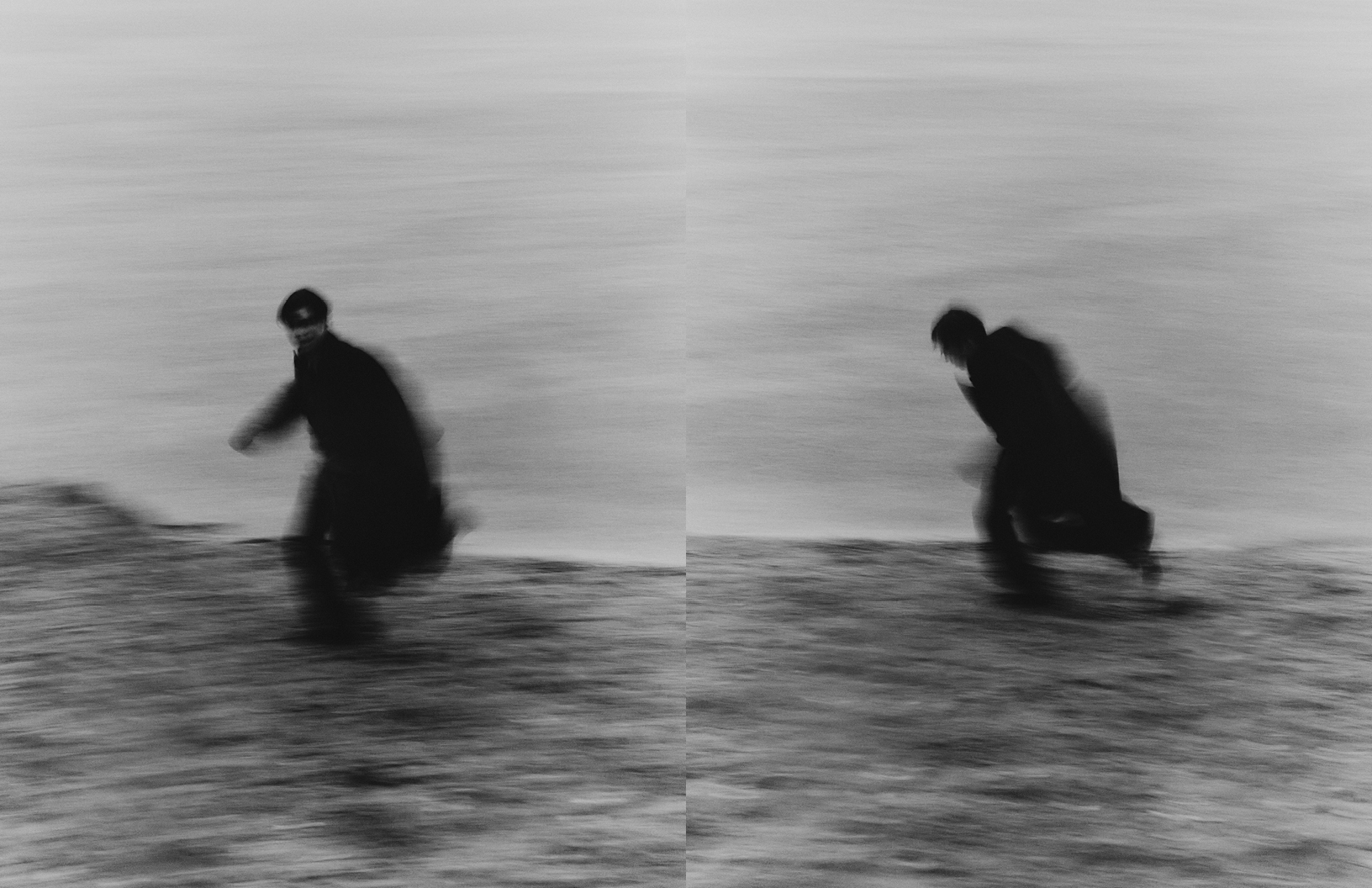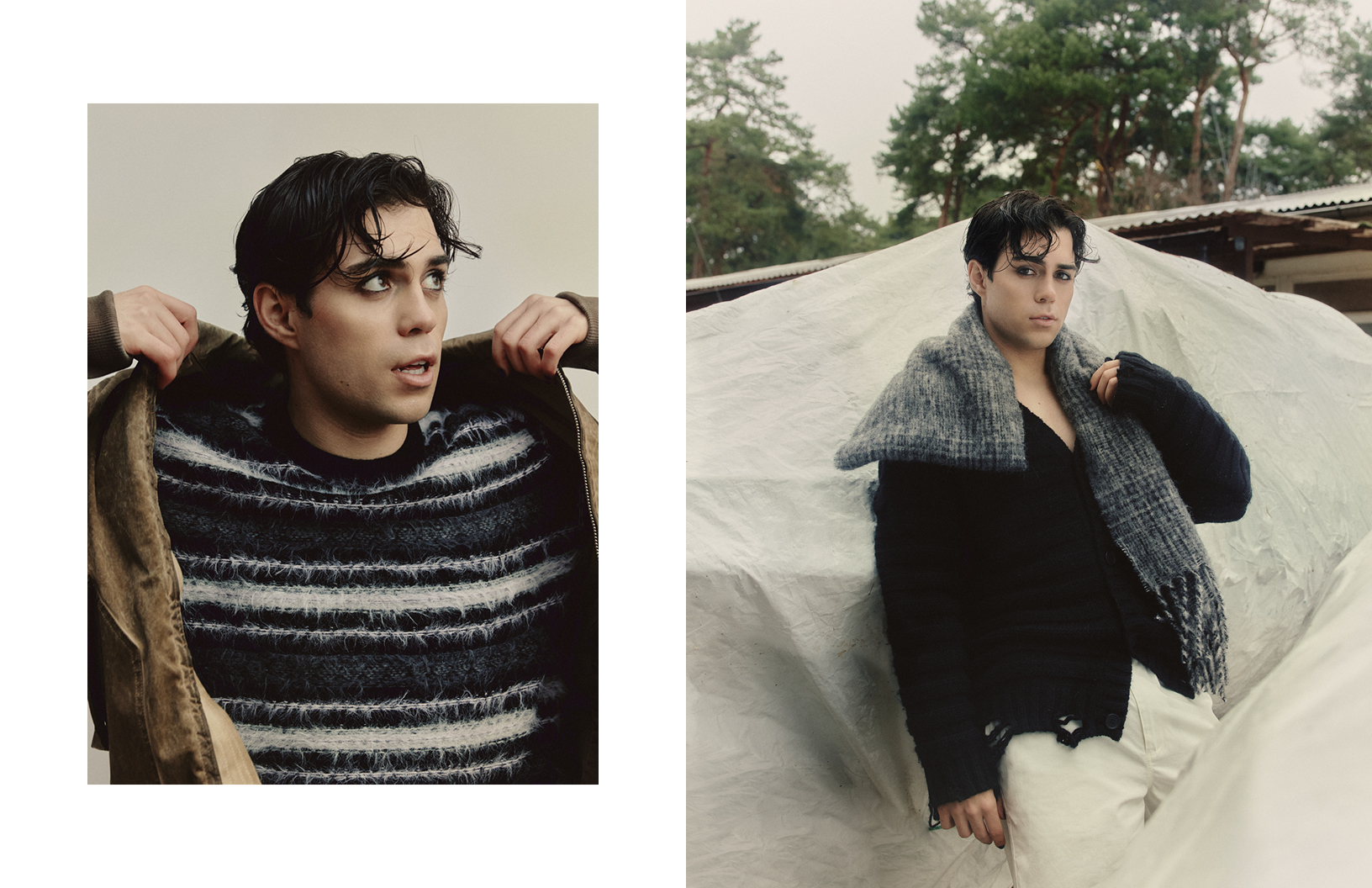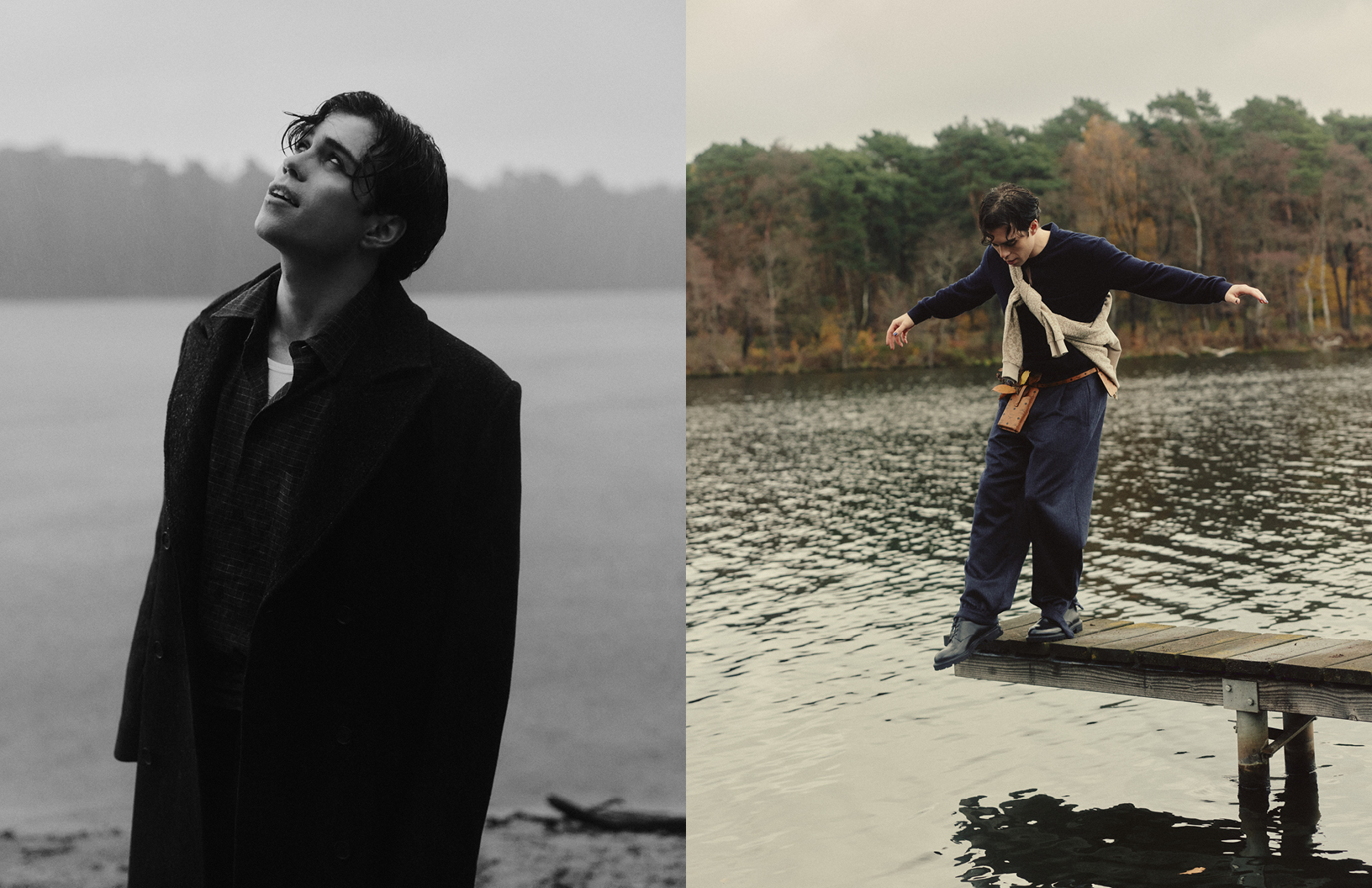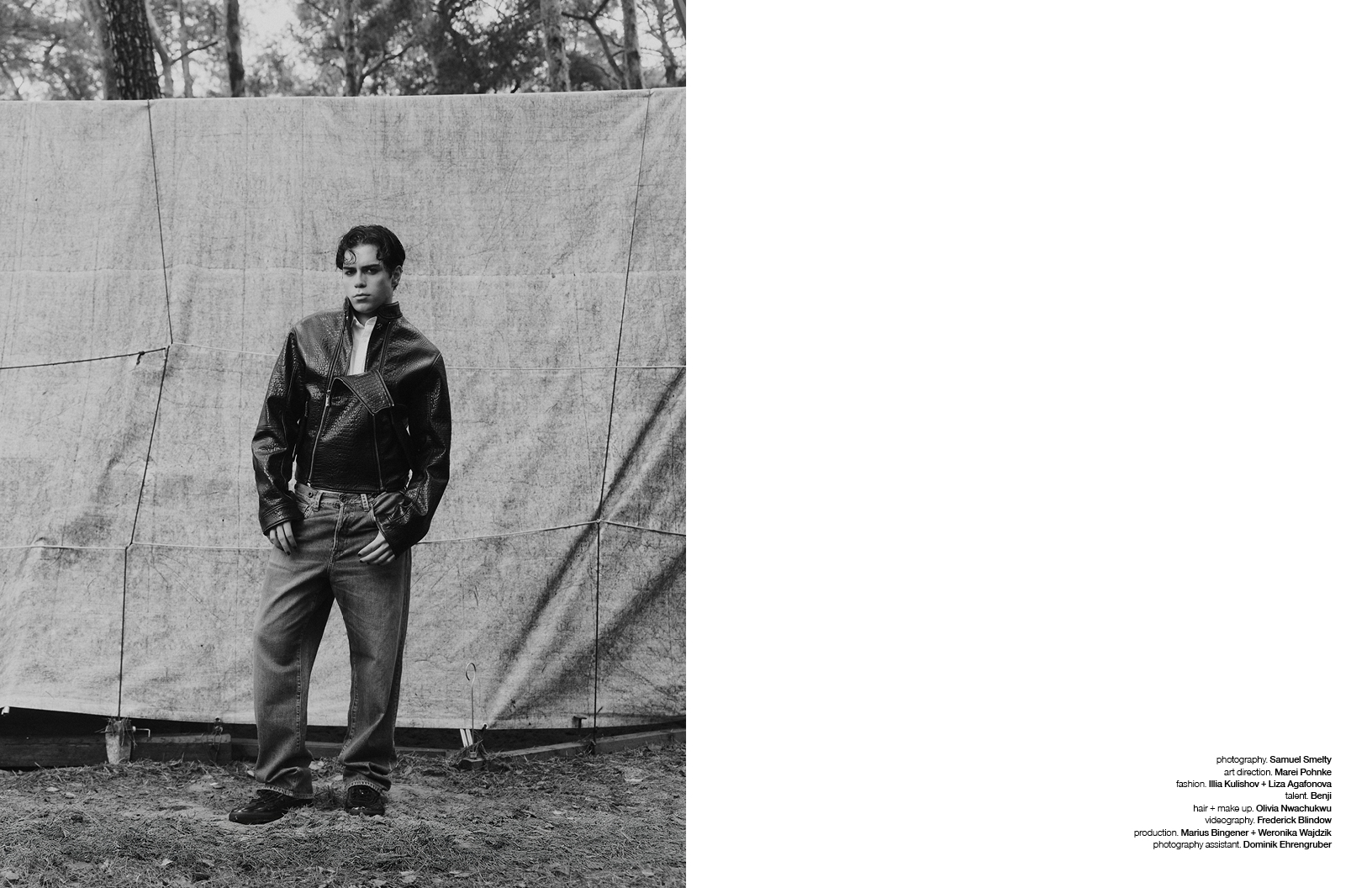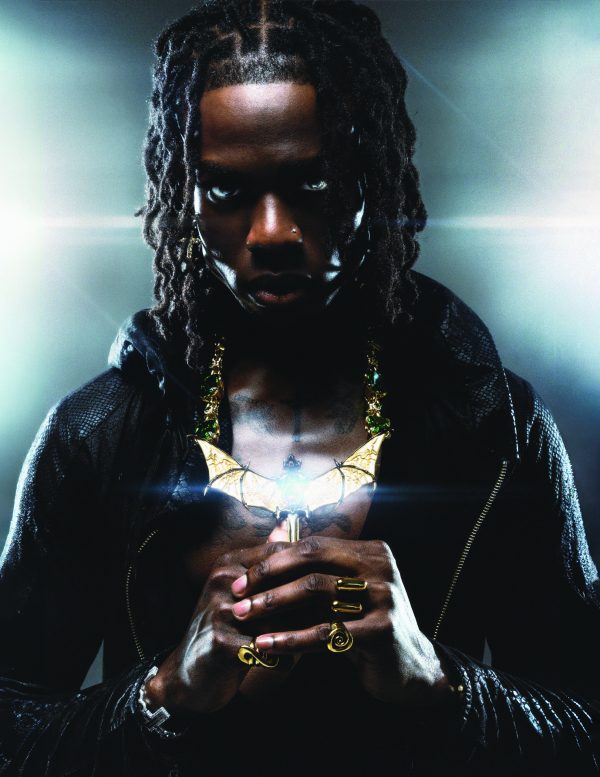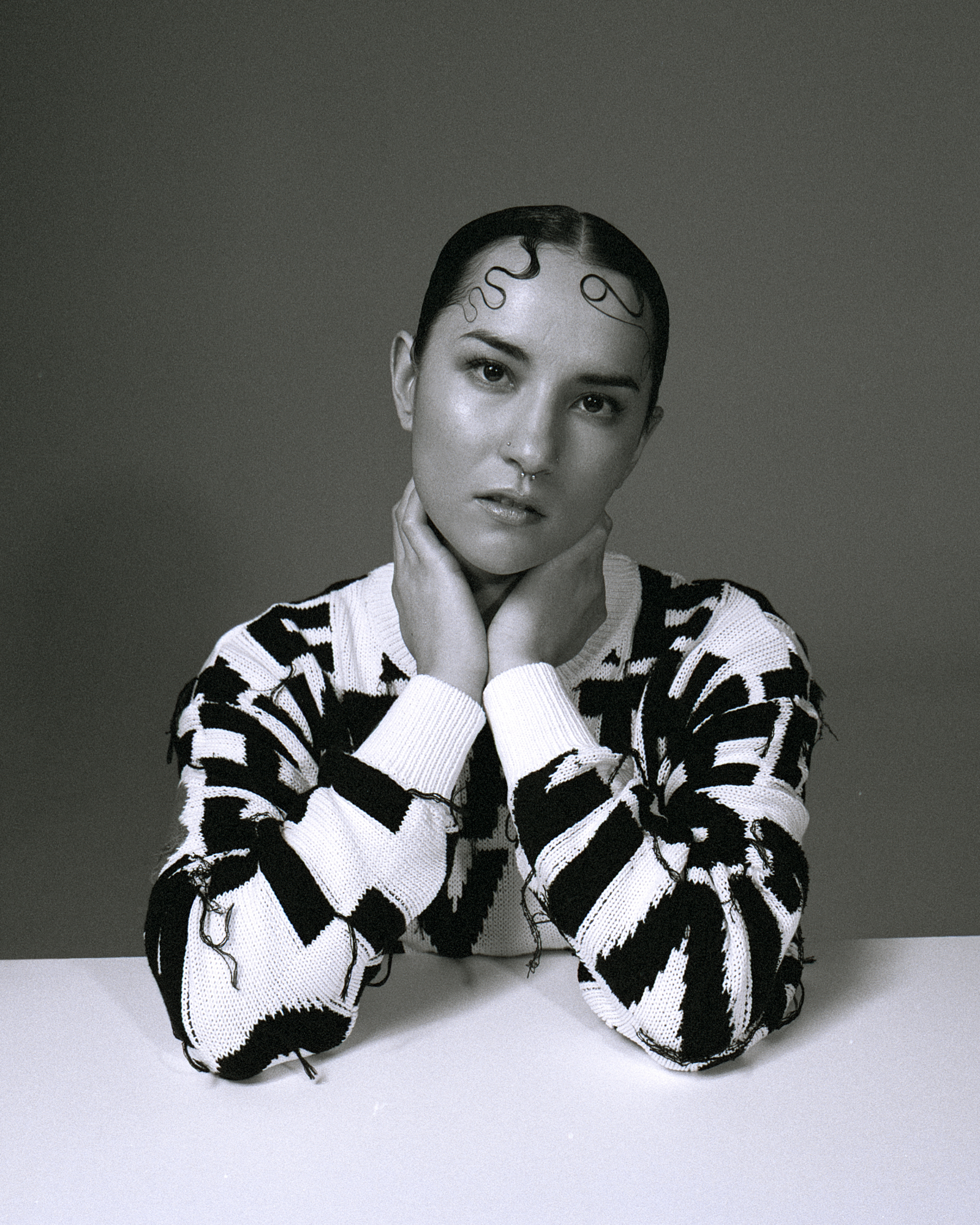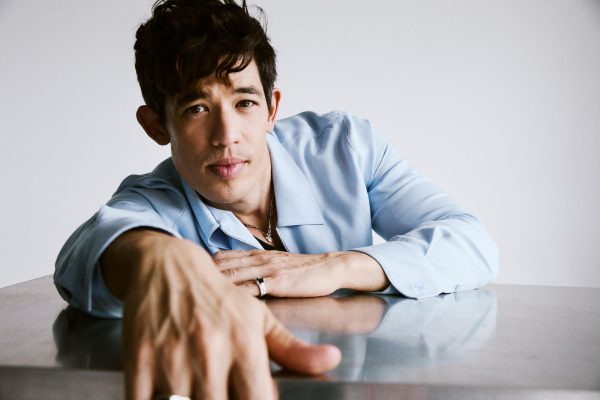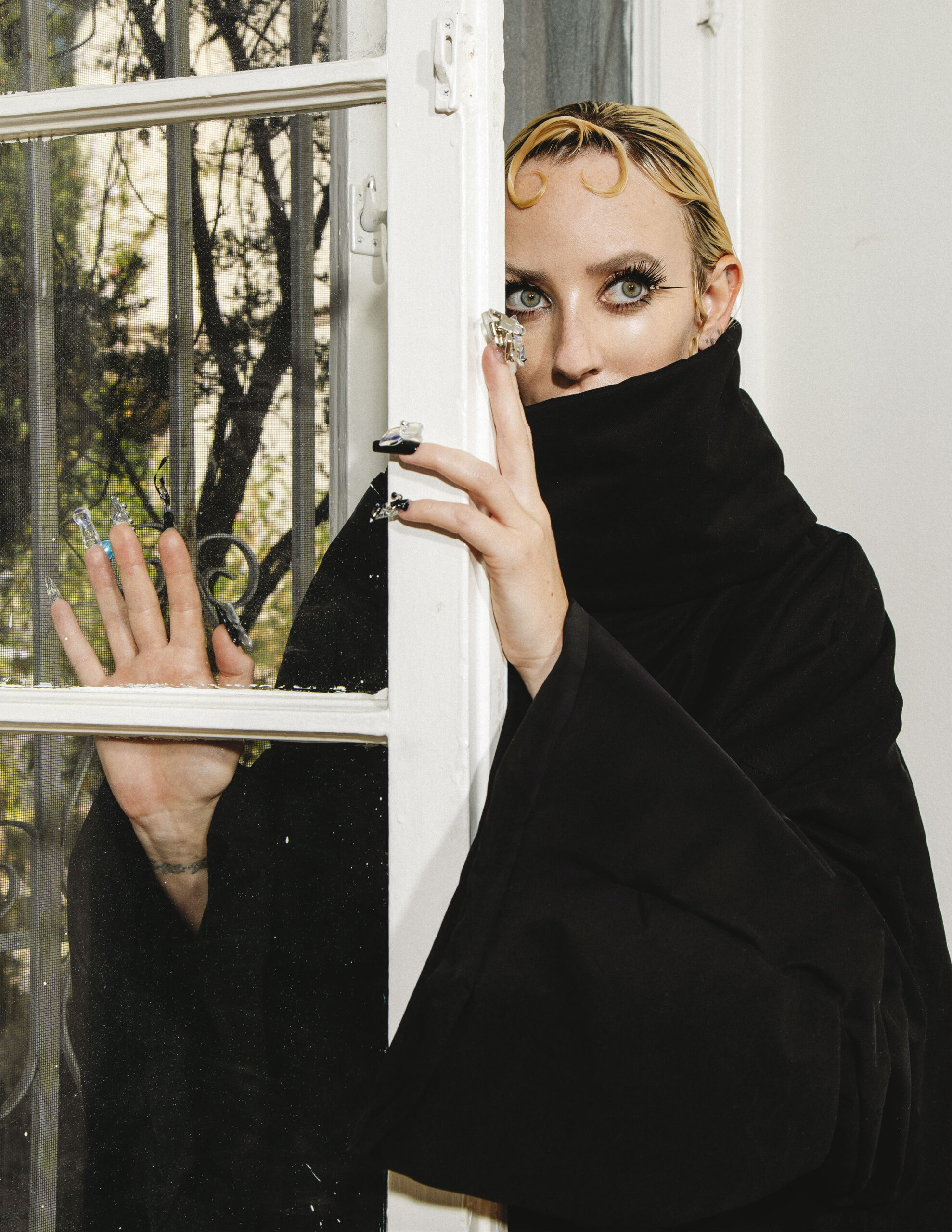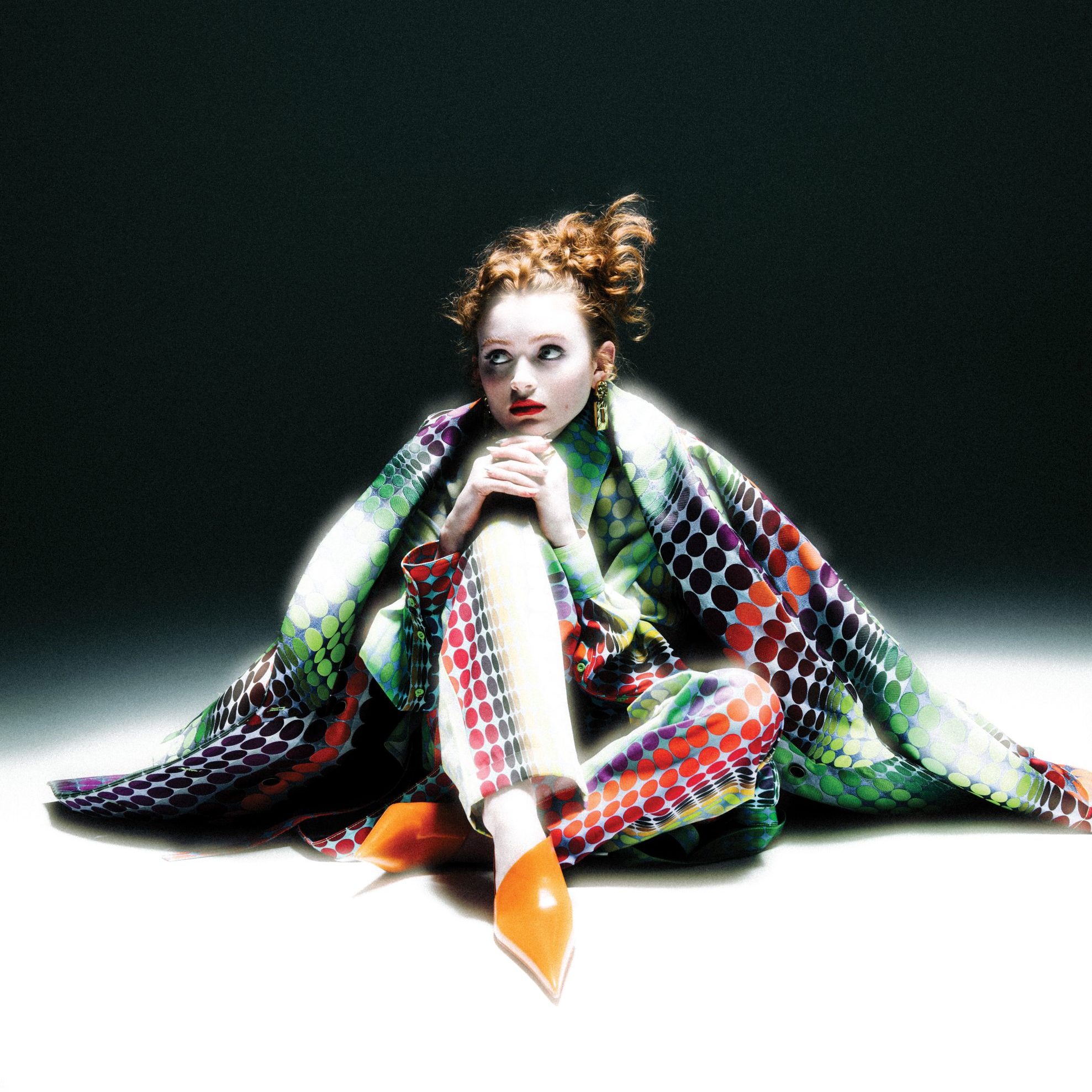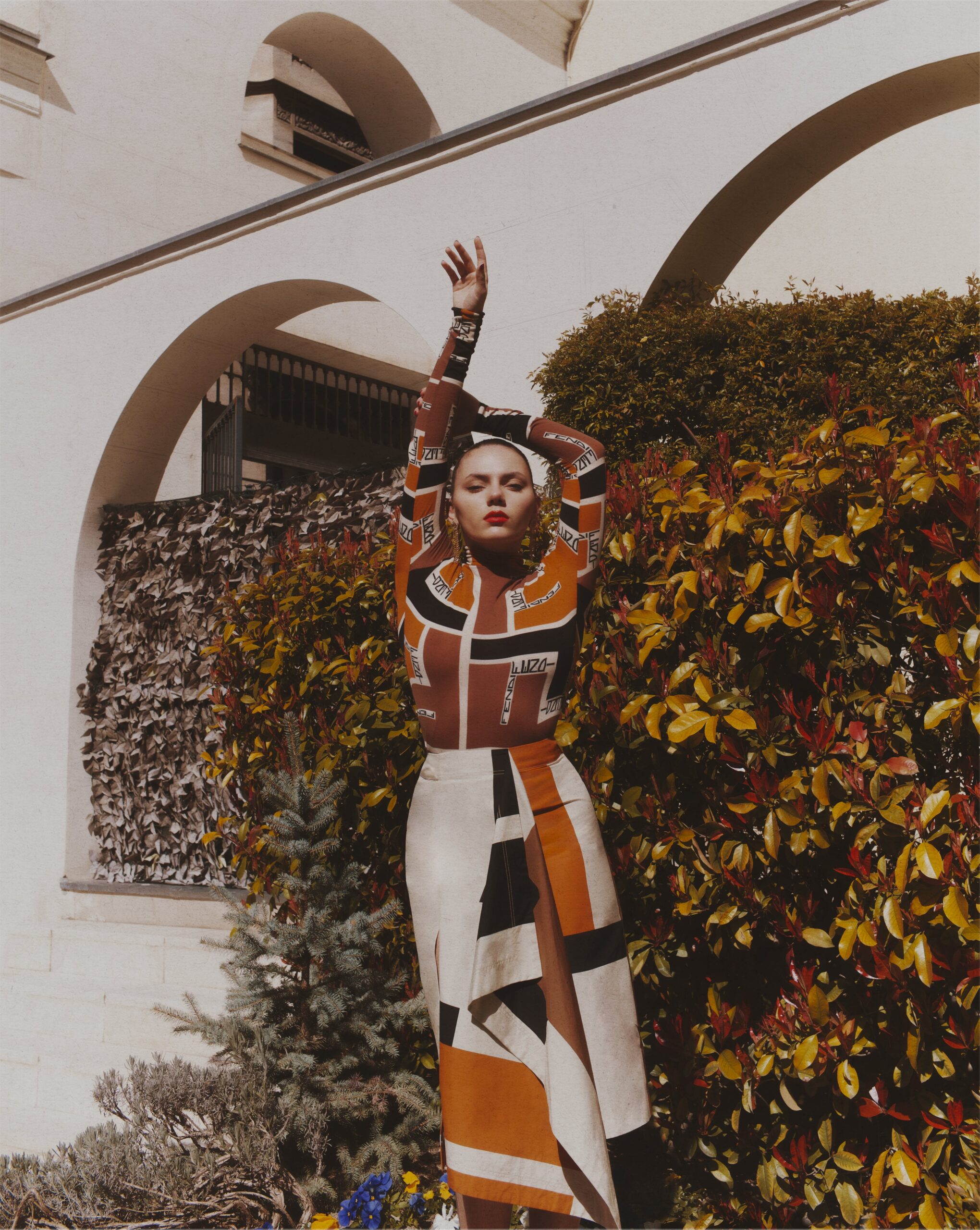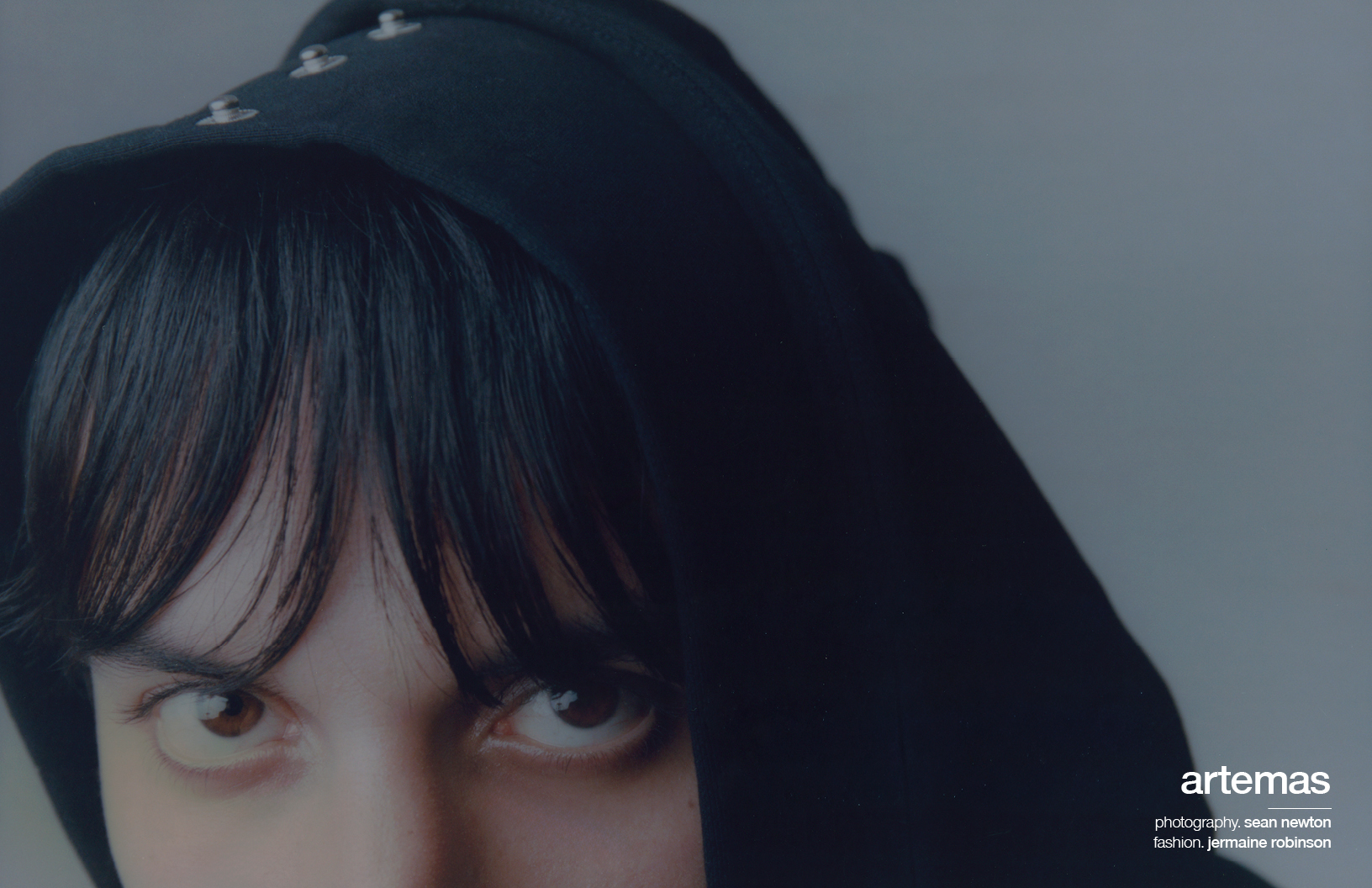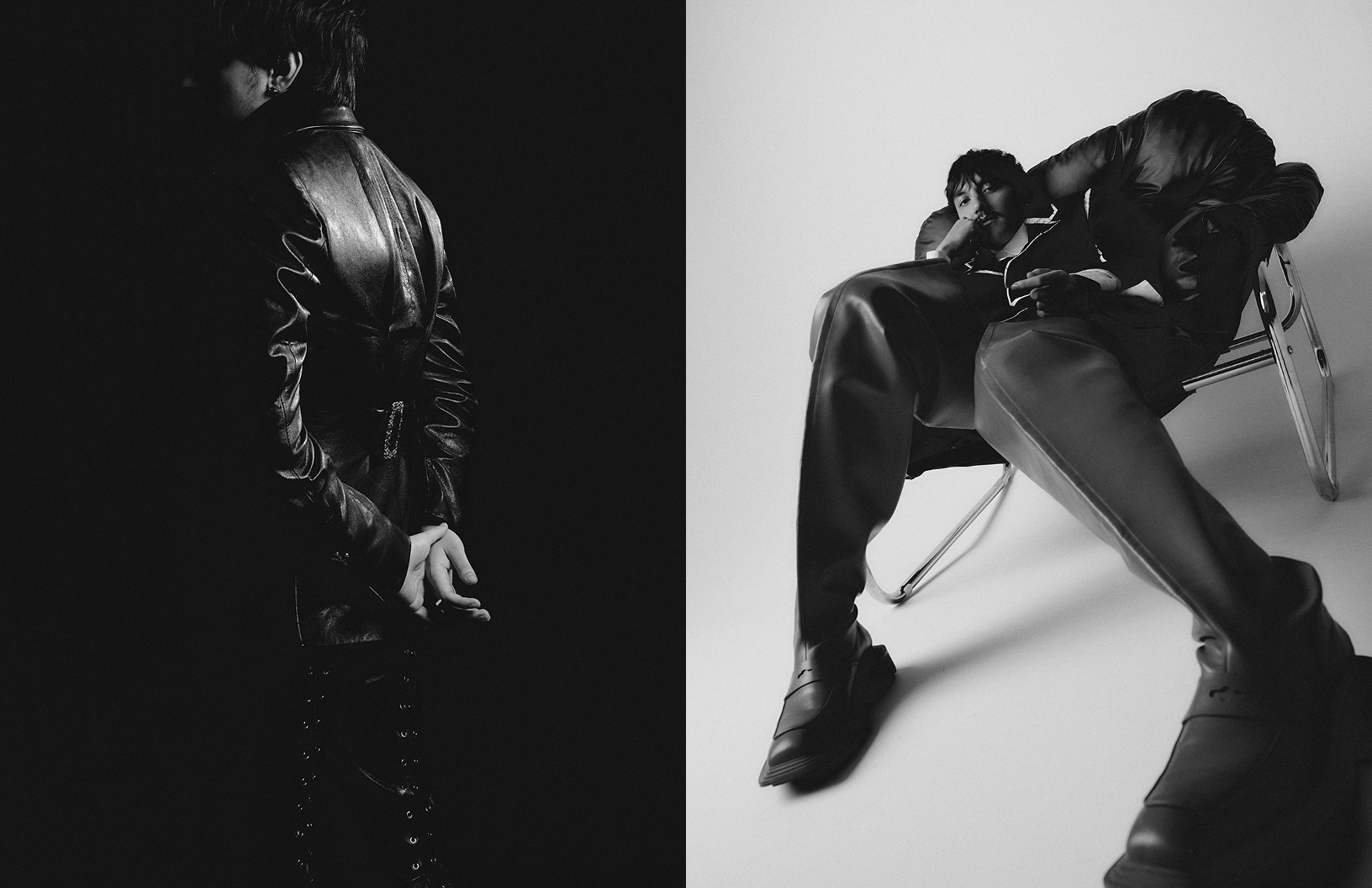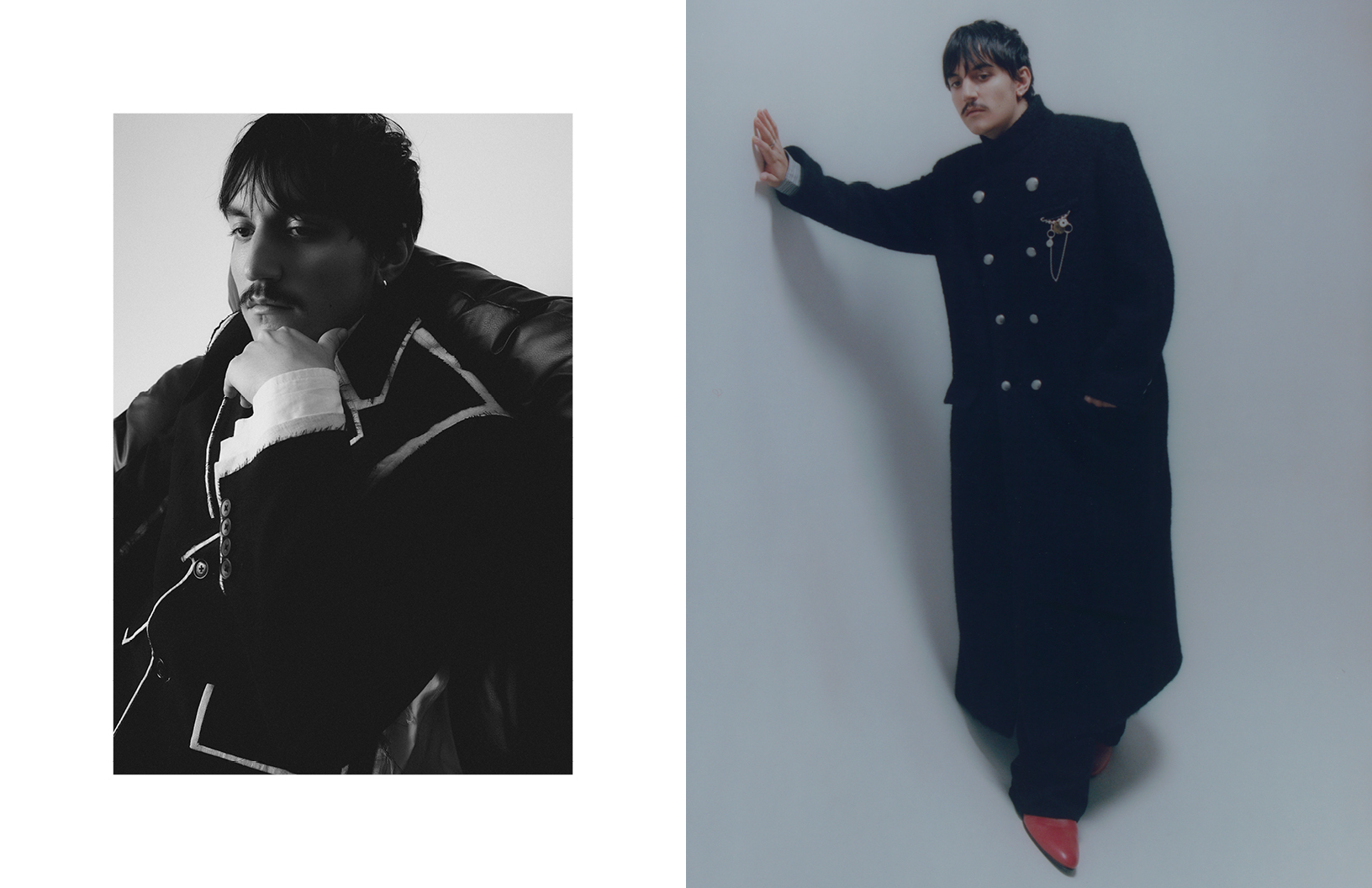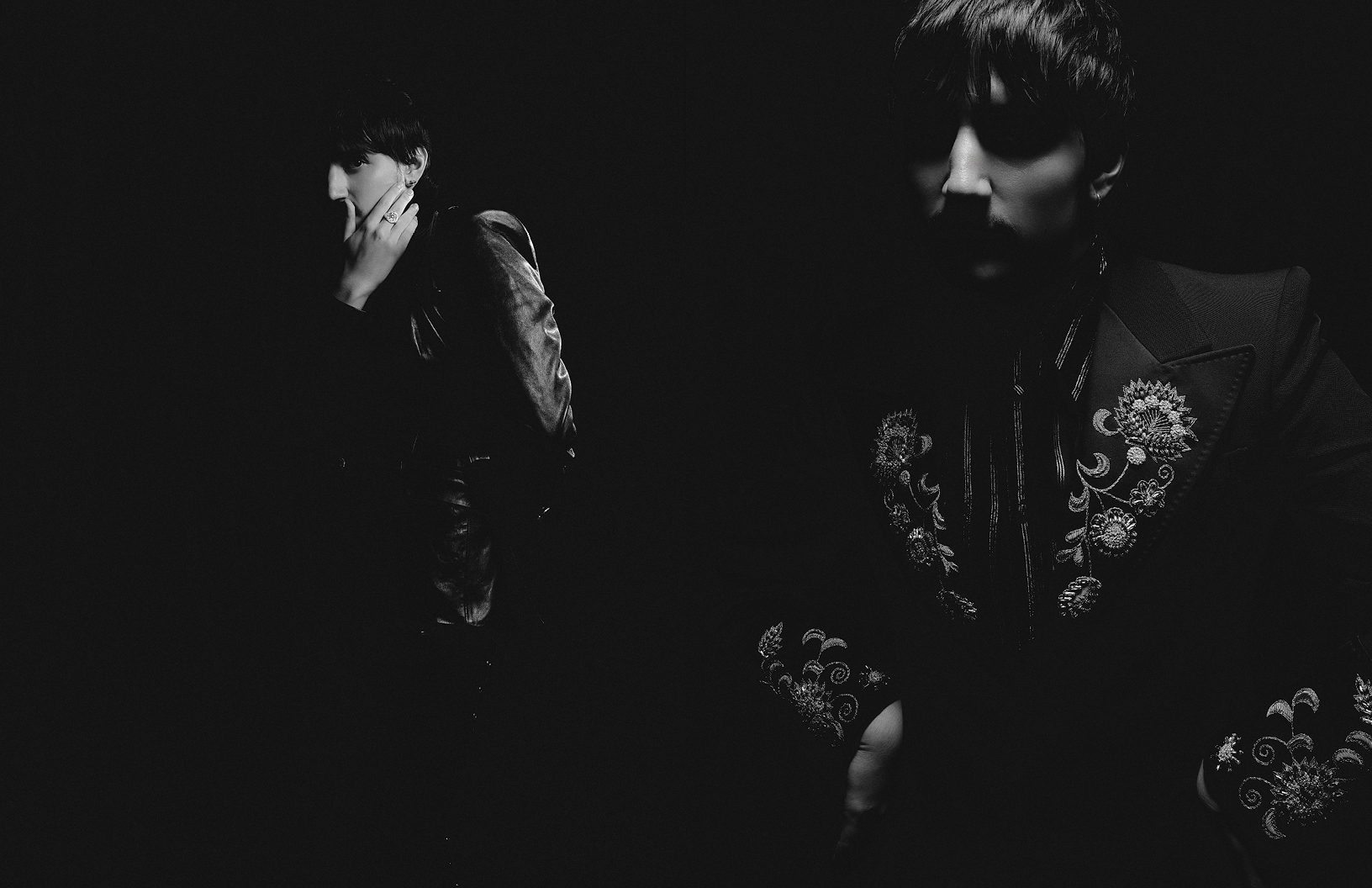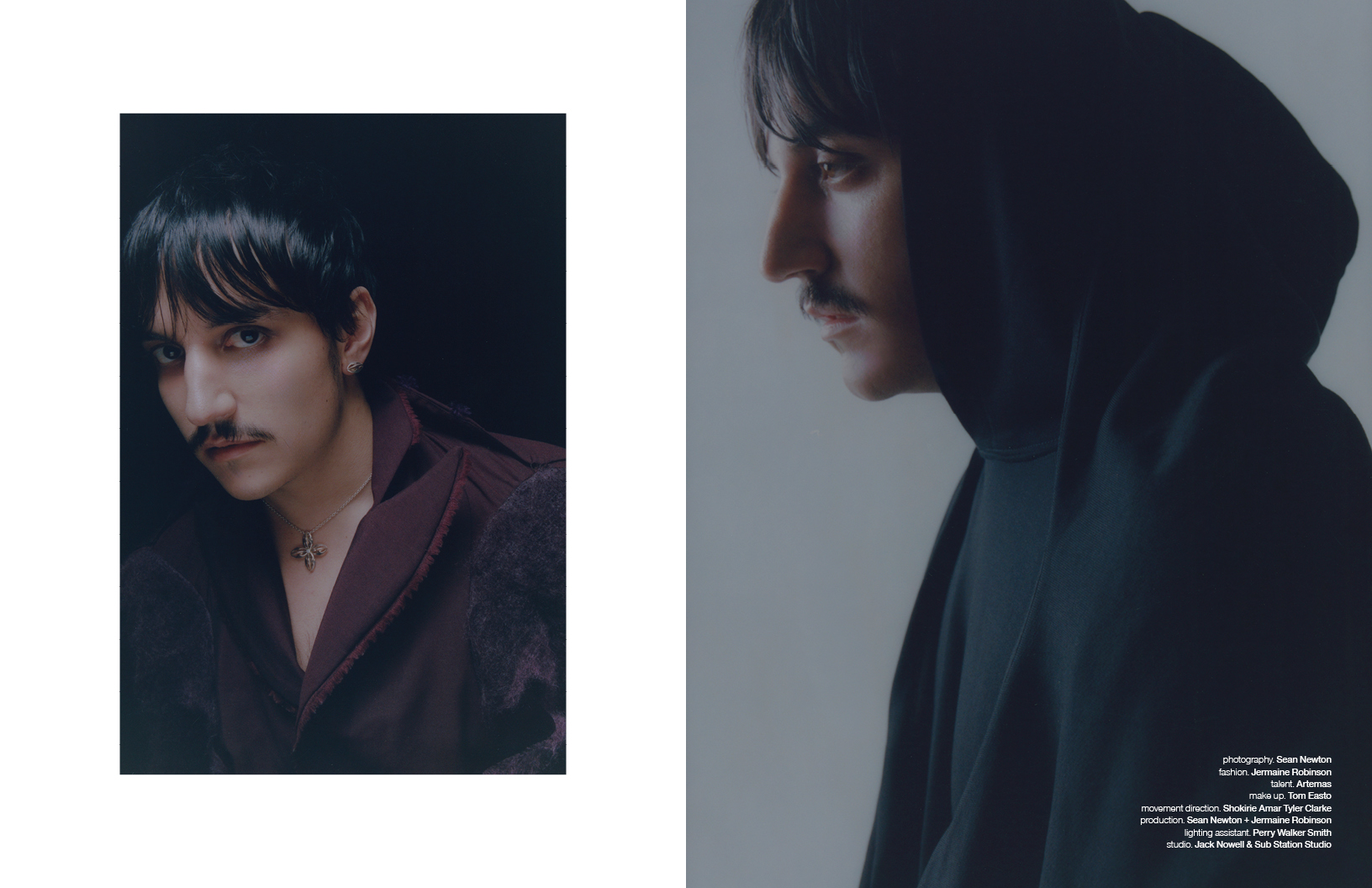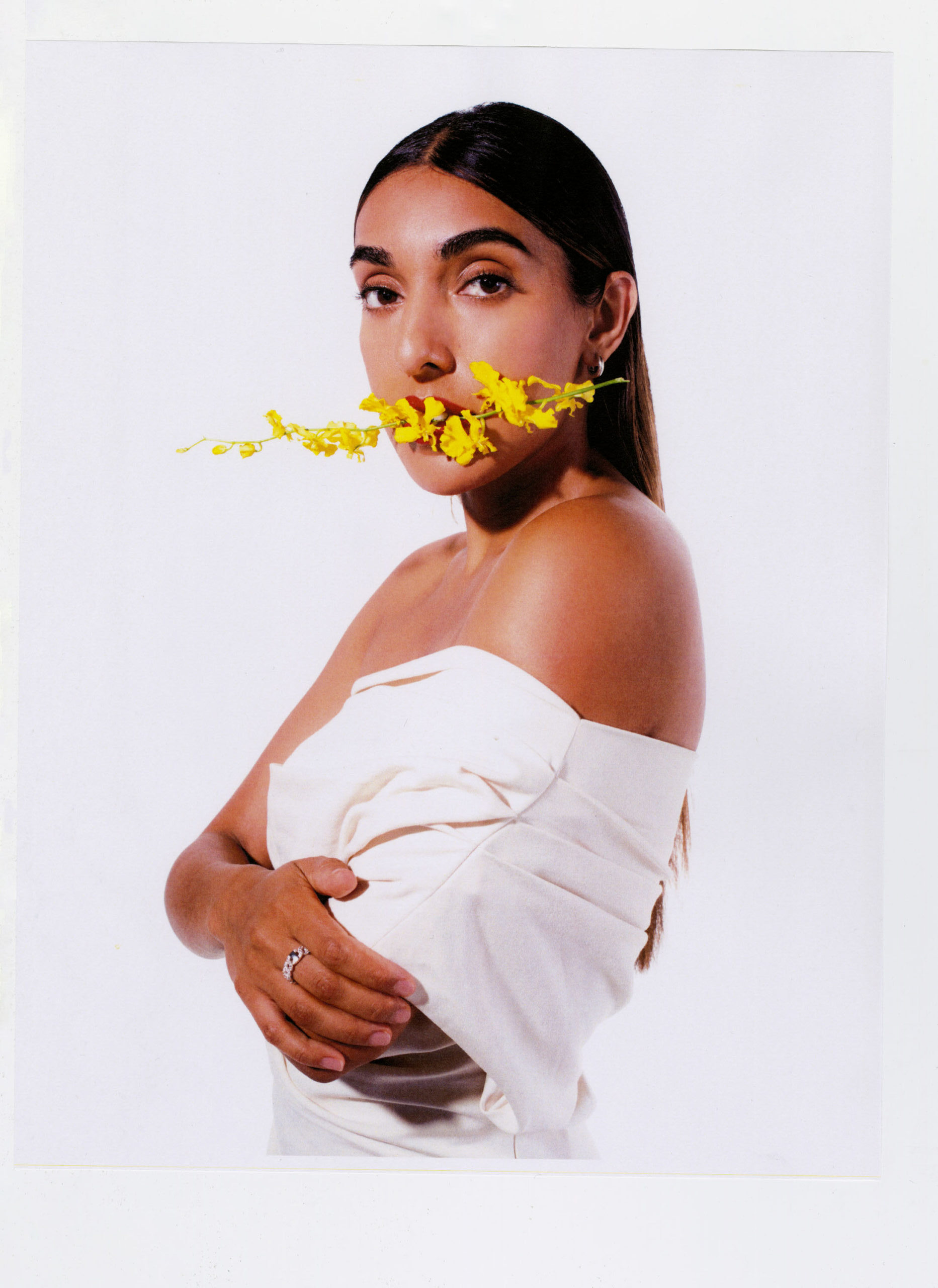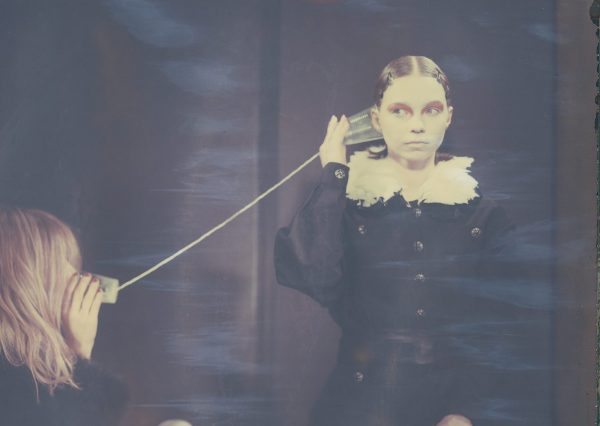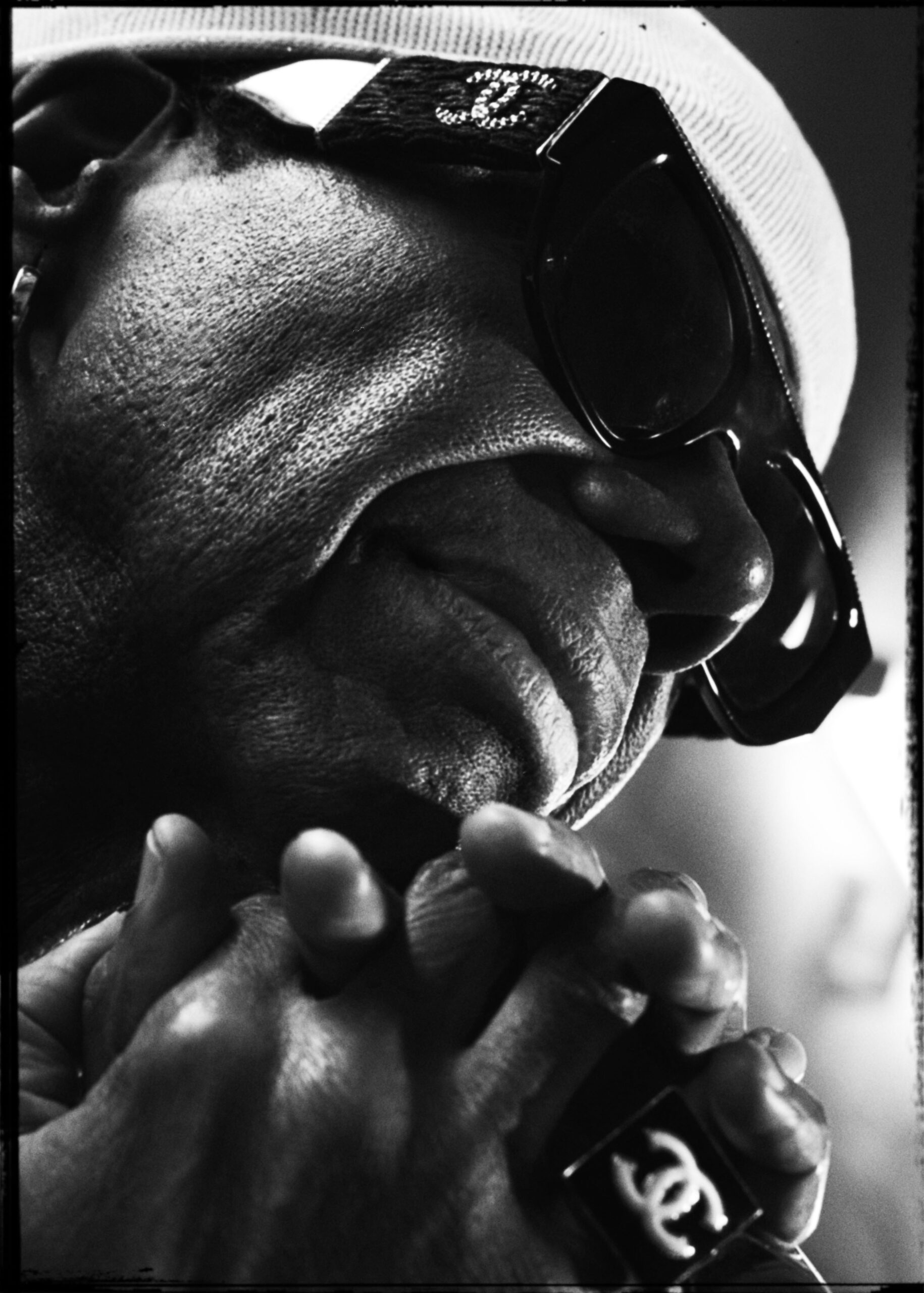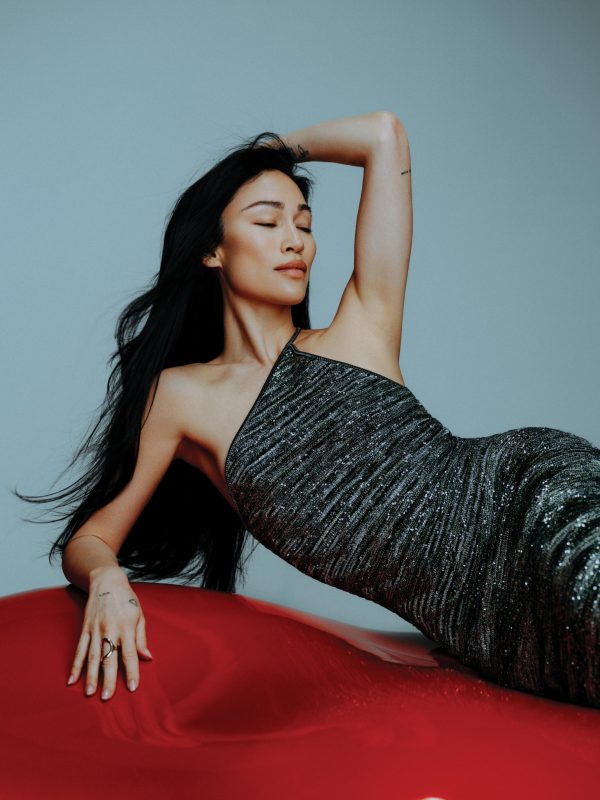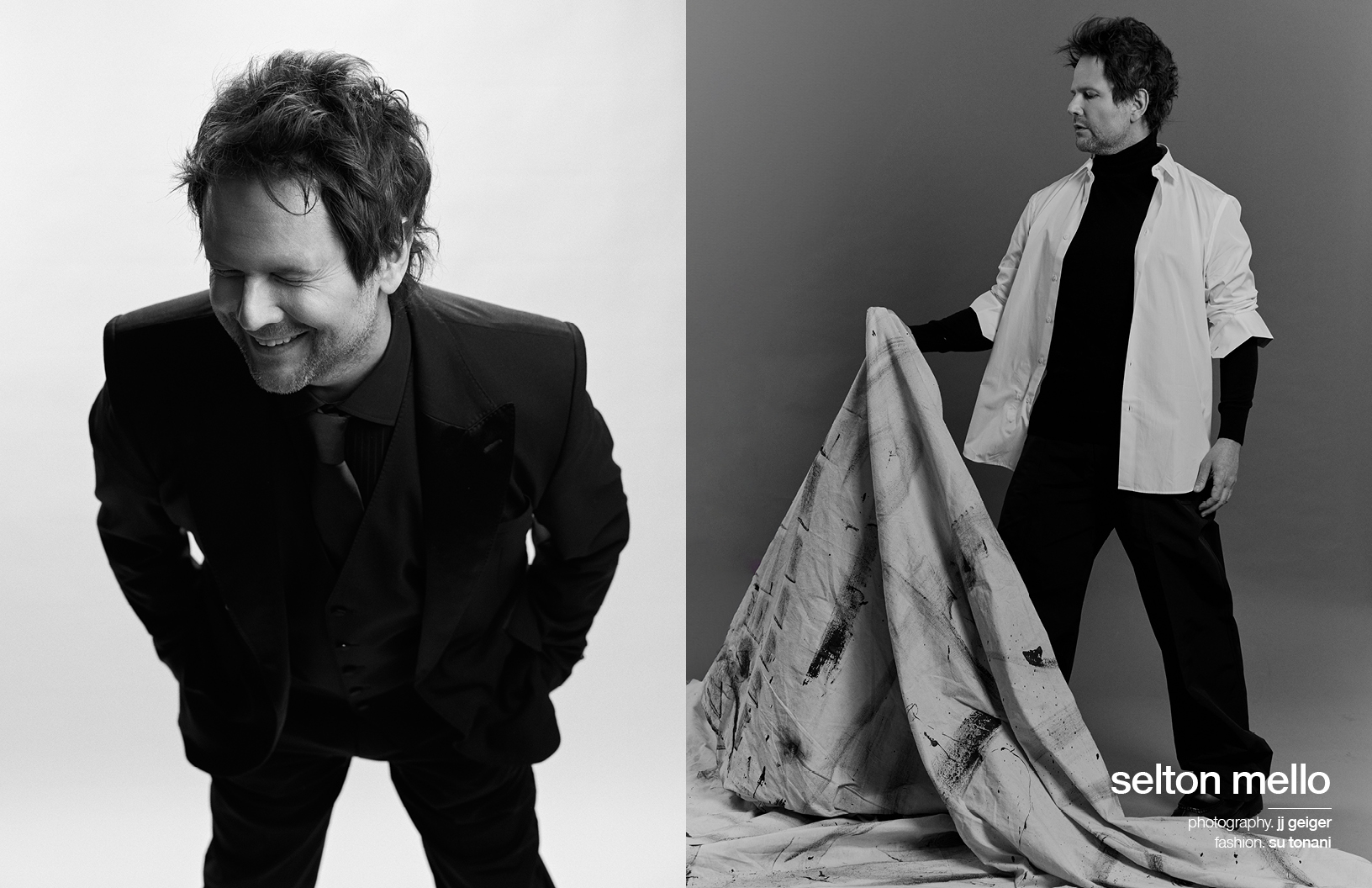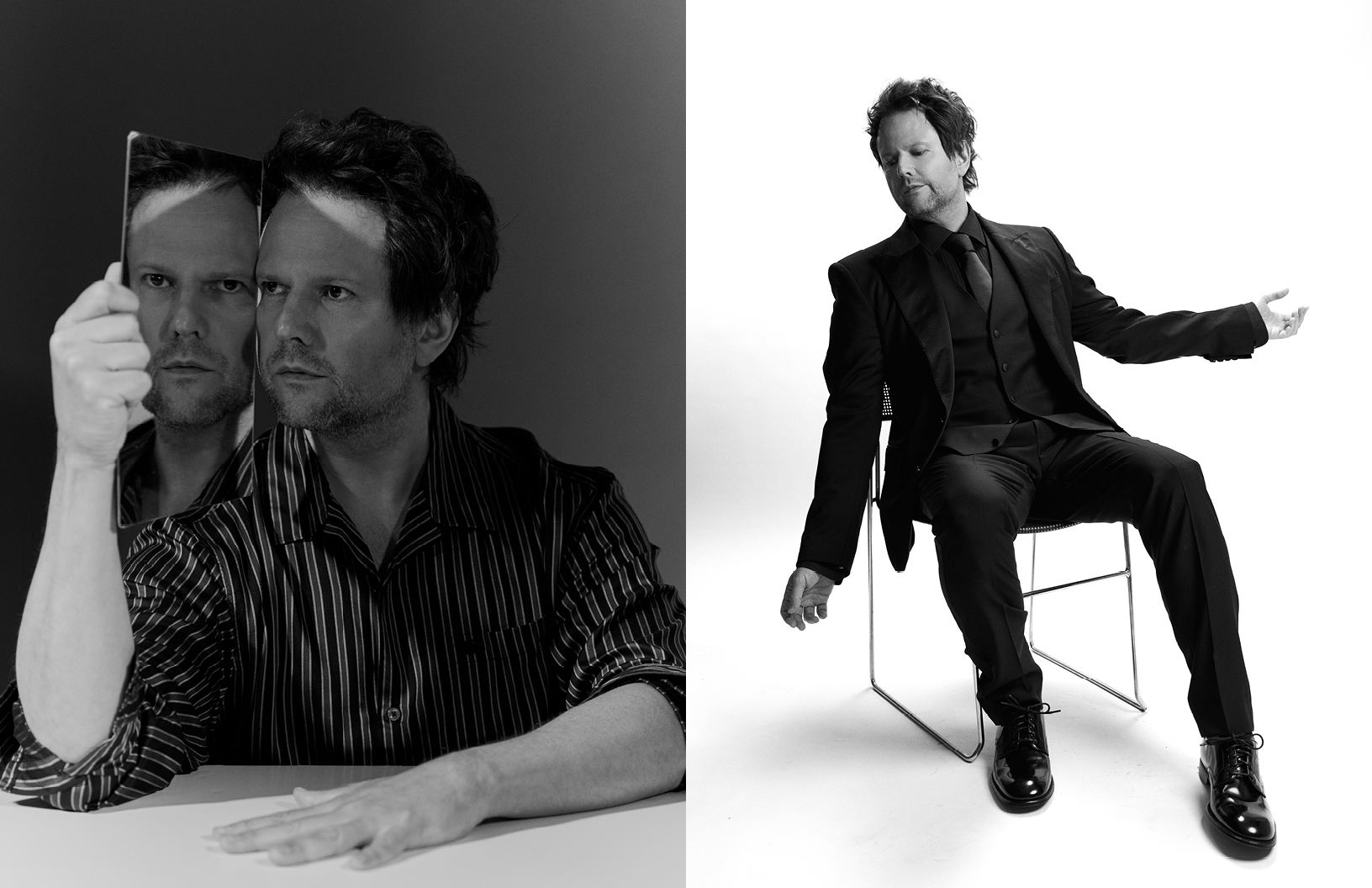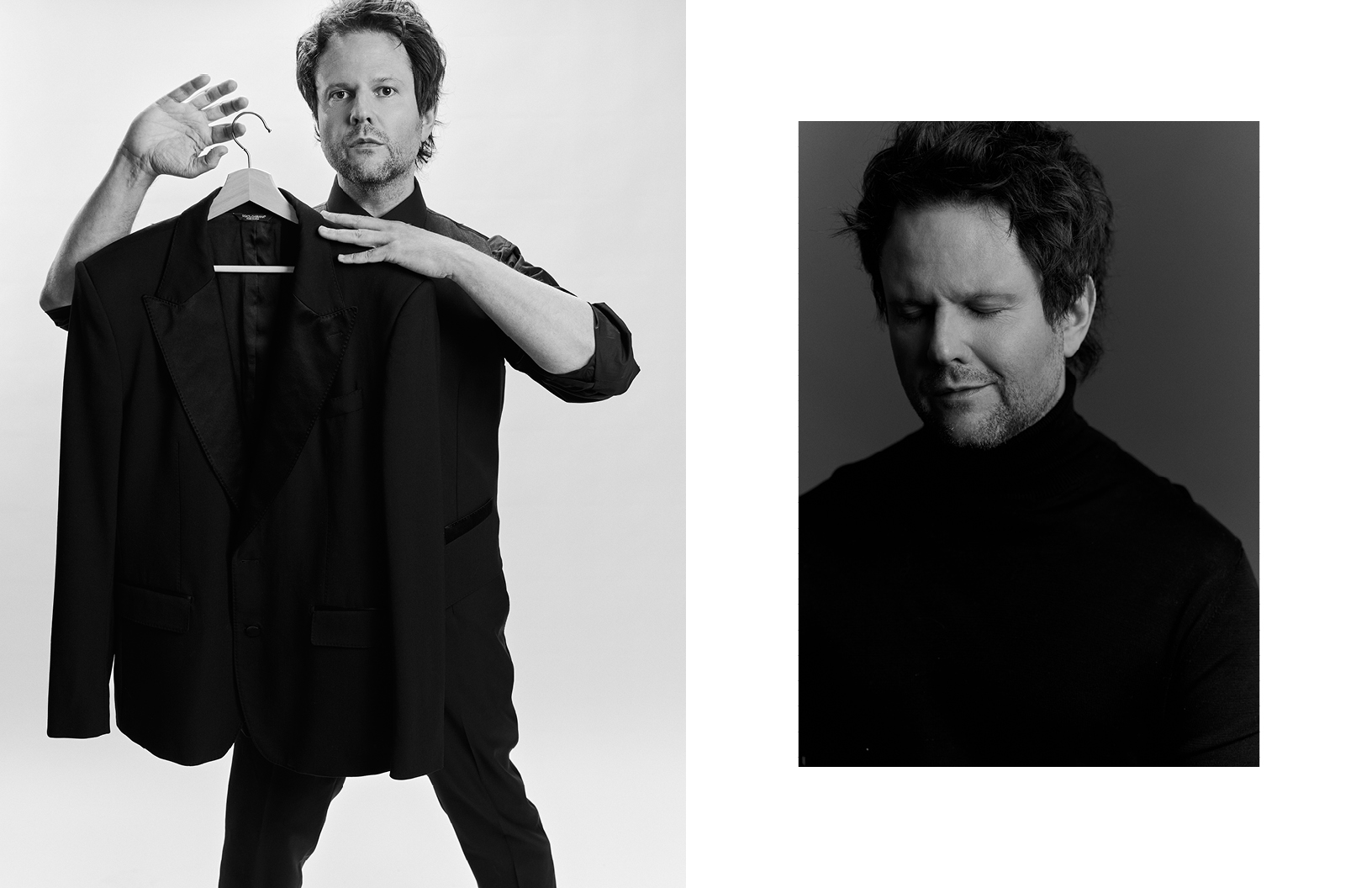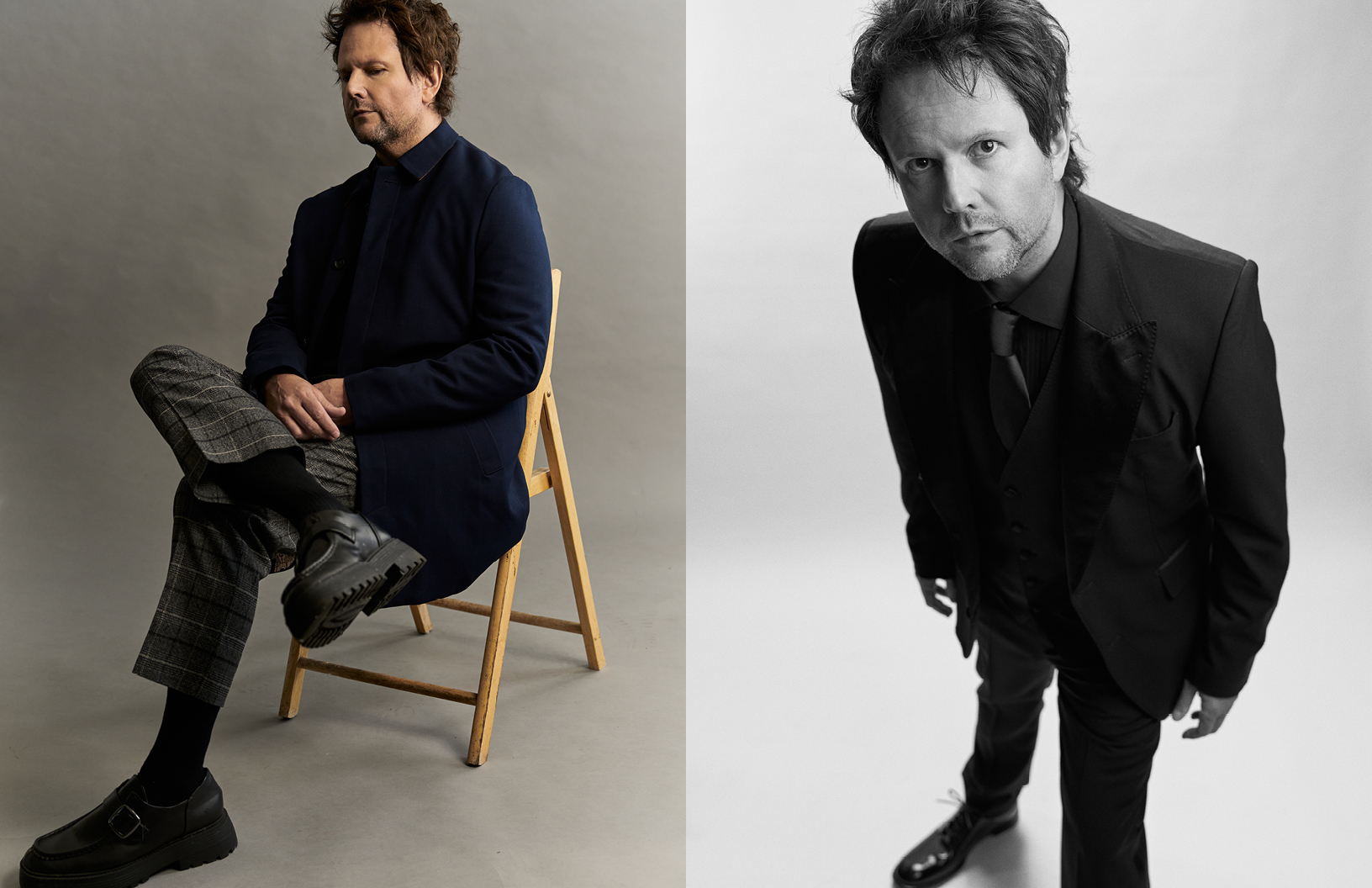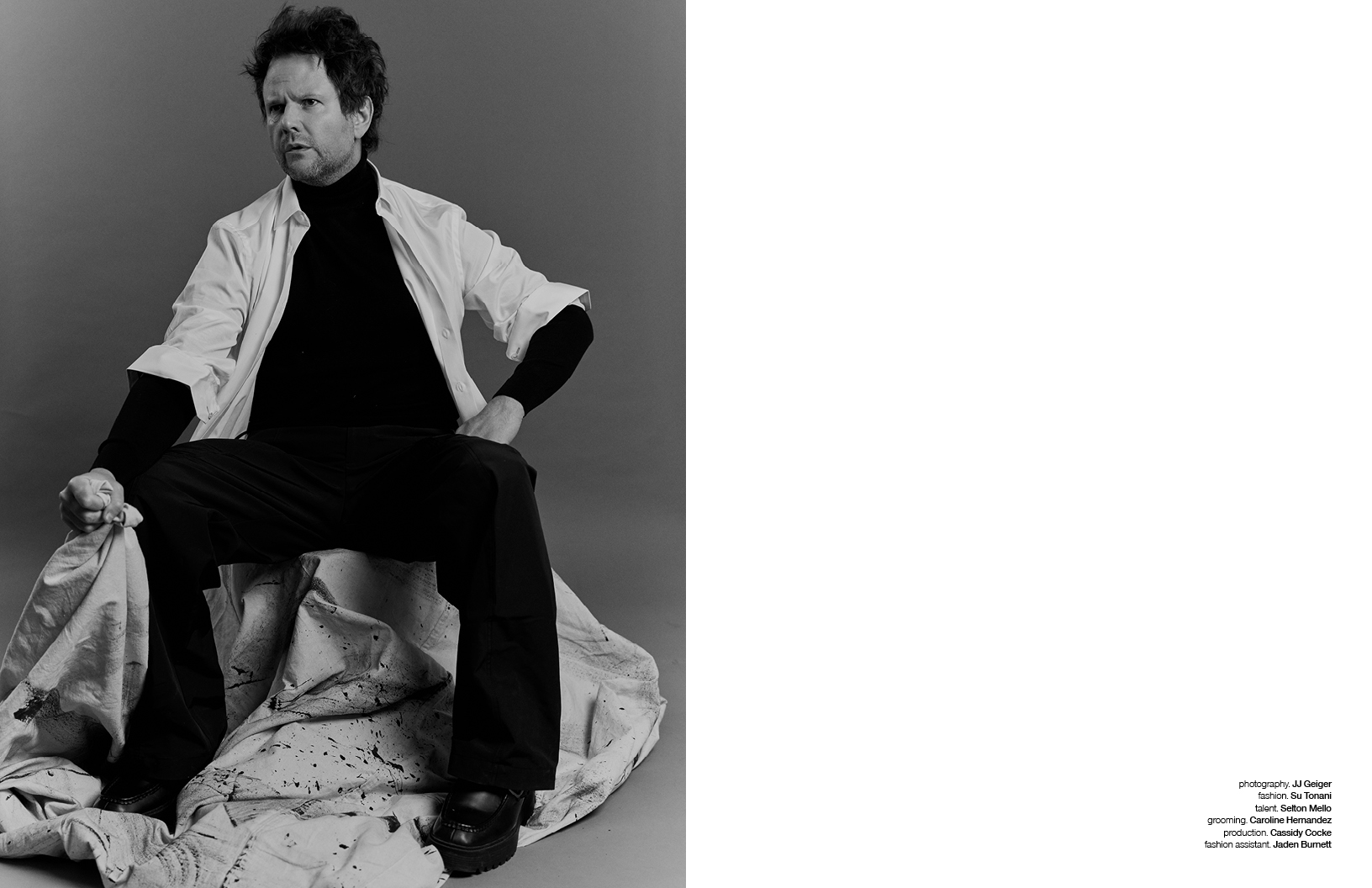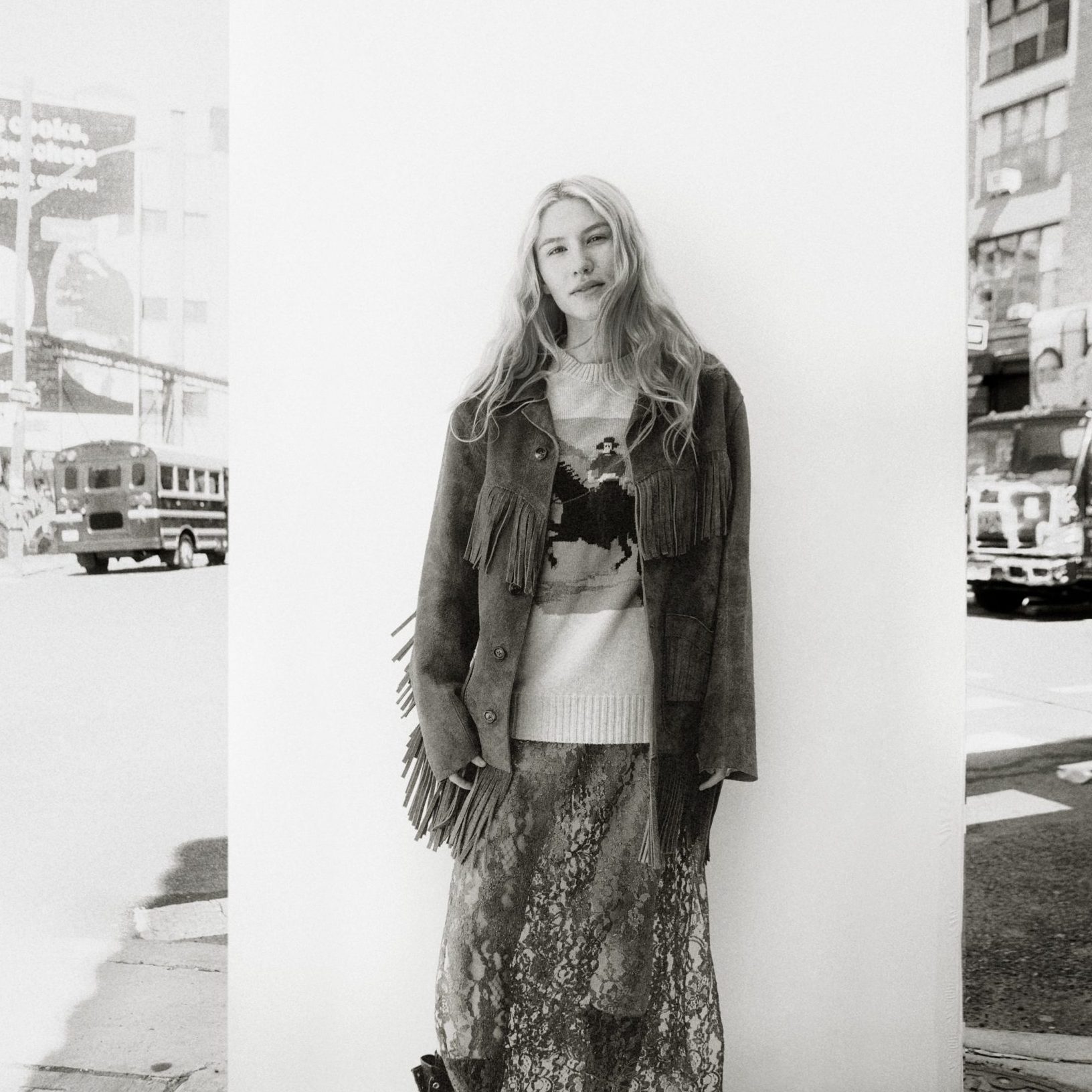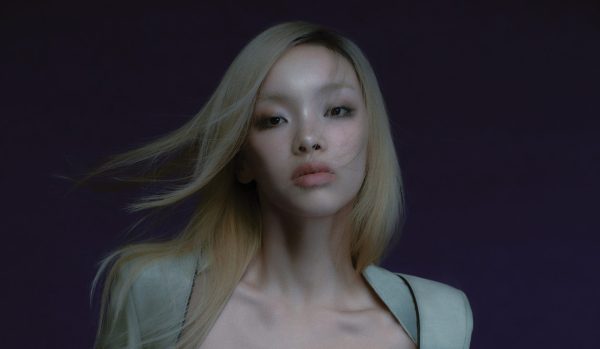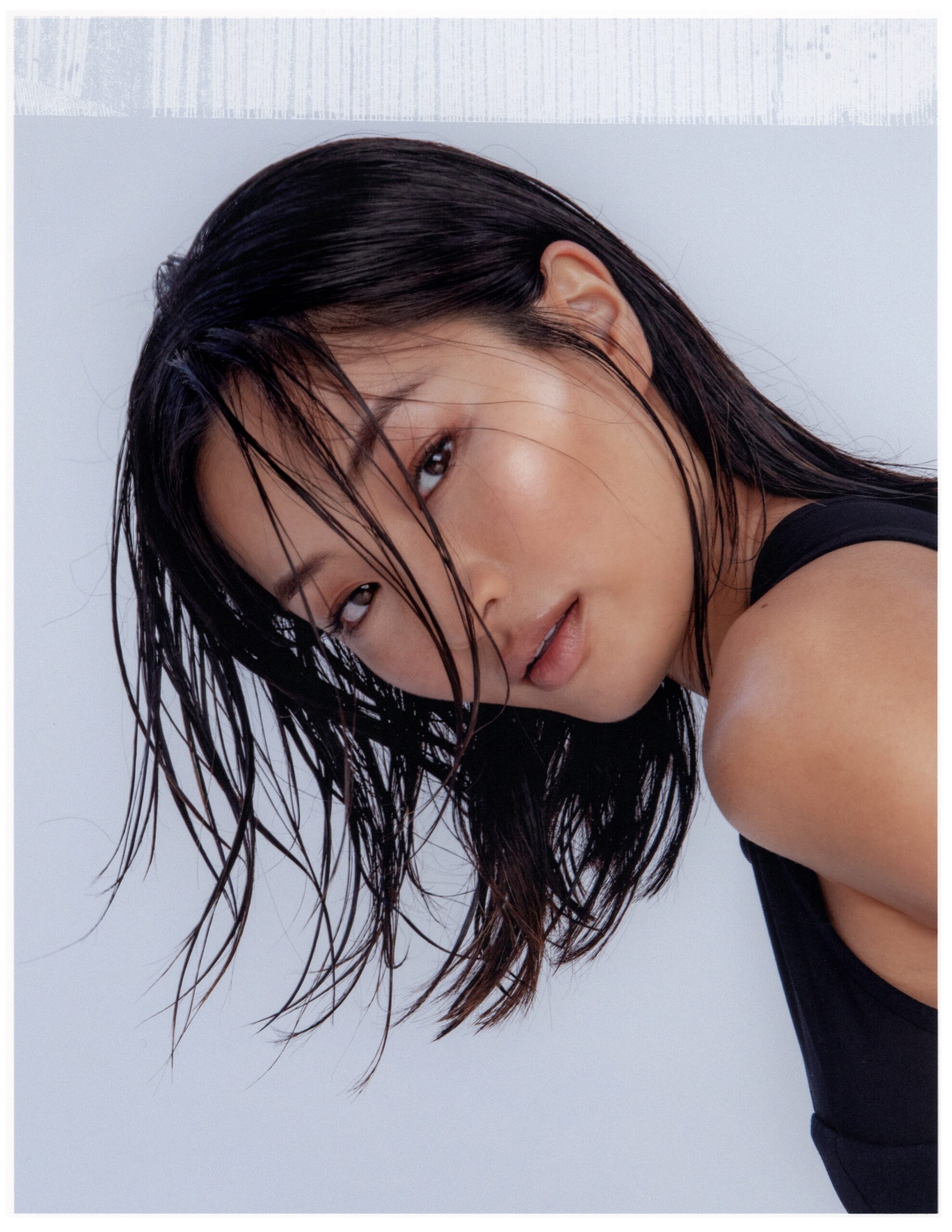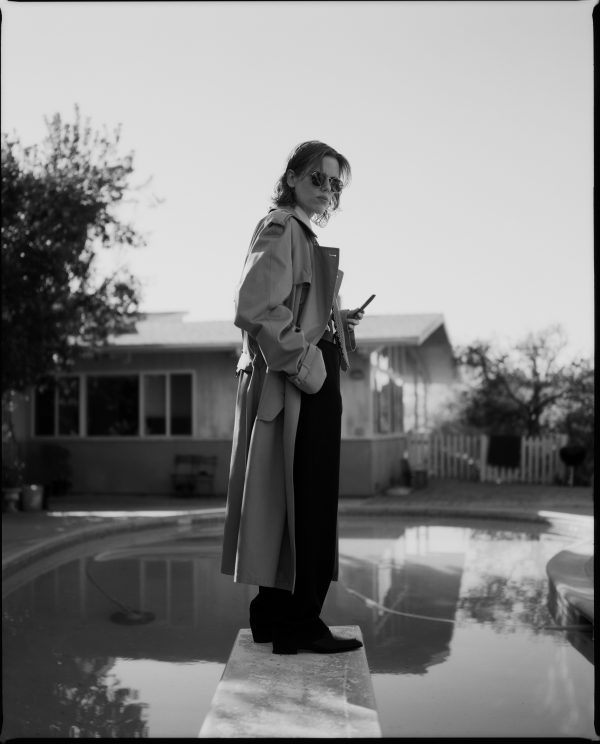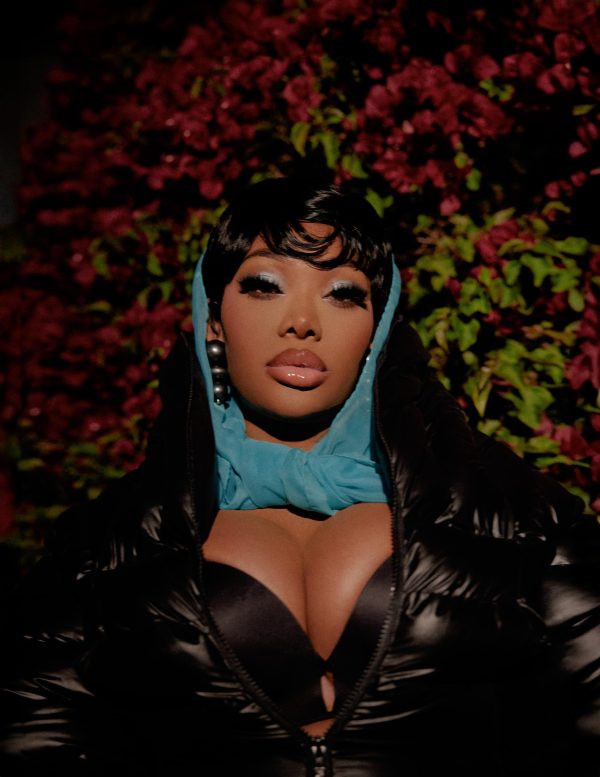When singer Rels B sits down to chat with Schön! on a hot summer afternoon, he appears on the screen with a splendid smile and a sympathetic look. It seems that the atmosphere relaxes and the nerves that may have existed are completely dissipated. Rels B (AKA Daniel Heredia) is a friendly and kind man, traits that can sometimes be unusual to use when describing someone with millions of fans and unstoppable musical successes behind him.
From his first singles like 3:45 or Para Siempre, Rels showed a very unique humanity, causing the public and the music industry to fall in love with his romantic vision of the world. Afterward, events have been happening in an accelerated way bringing accumulating successes, clamour, critical applause, stress and even artistic identity games.
Now, after the success of his LP, La Isla, a tribute to his homeland of Mallorca, Rels B is embarking on an intergalactic adventure with his new album: AfroLOVA’23. On the album, Rels B — along with his pet robot ROSE — searches for true love through the mysterious planets of a colourful galaxy. Rels B chats with Schön! about his new album, his creative vision, and more.
There is a great aura of mystery that surrounds you. People are constantly trying to find out who you are, who is behind all those artistic names: Rels B, Skinny, or simply Dani. Why this effort to discover your true self?
Starting an interview by asking about my artistic name is an easy way to start the conversation. It seems almost like a self-defence mechanism for the journalist I’m talking to trying to break the ice.
And what response do you think they expect?
Maybe one day you ask me for my stage names and I make up a story or something. Today, what I can tell you is that I am Dani, my artistic name is Rels B or Skinny Flakk. I try to make a living from what I like, which is my music. I’m just all that, I don’t separate it into facets. I live my daily life trying to live as the best version of myself.
That variety of artistic names, do they arise from boredom or a restless imagination?
I like using Skinny better because it’s the name I have as a user on Instagram. I also like Skinny Flakk or Flakk. I’ve been using the name Rels B for 10 years and, after reading it so many times in all the magazines and interviews, I’ve ended up a bit tired [of it], although it’s still my official artistic name [laughs].
I’ve been listening to your music for a few years and it feels like, over time, you’ve gained much more confidence in yourself.
For many years it was difficult for me to do interviews because when I talk to a stranger I get lost and end up talking about everything except myself, which is precisely what I should do during an interview. That’s why I haven’t done interviews for a long time, hoping that the day would come when I knew how to be part of one. Now, I feel relaxed and capable of participating in this interaction.
So, this new comfort has done you well.
Yeah, it has been this last year that I have felt this peace of mind.
Has shyness also disappeared in your personal life?
I’m still pretty shy. I don’t open up easily if I don’t know the other person. When I feel confident, I can be a little cocky [laughs].
That must be tricky when you’re in the public eye.
Yes. I see there are people around me who are also famous and use that status much better than me. They are much more productive going to events and doing other things and I am not like that. I feel envy when I see that there are people who feel very comfortable in those environments.
Perhaps that is why you are defined as “the good boy of urban music.”
That was a long time ago, I’m not that good anymore [laughs]. They said that I was the good boy because I have never gotten into trouble or controversy and, even so, I have managed to make my music career work very well, selling out concerts and attracting a wider audience every time.
I imagine that you will be just as good and bad as everyone else.
You said it. I am like everyone.
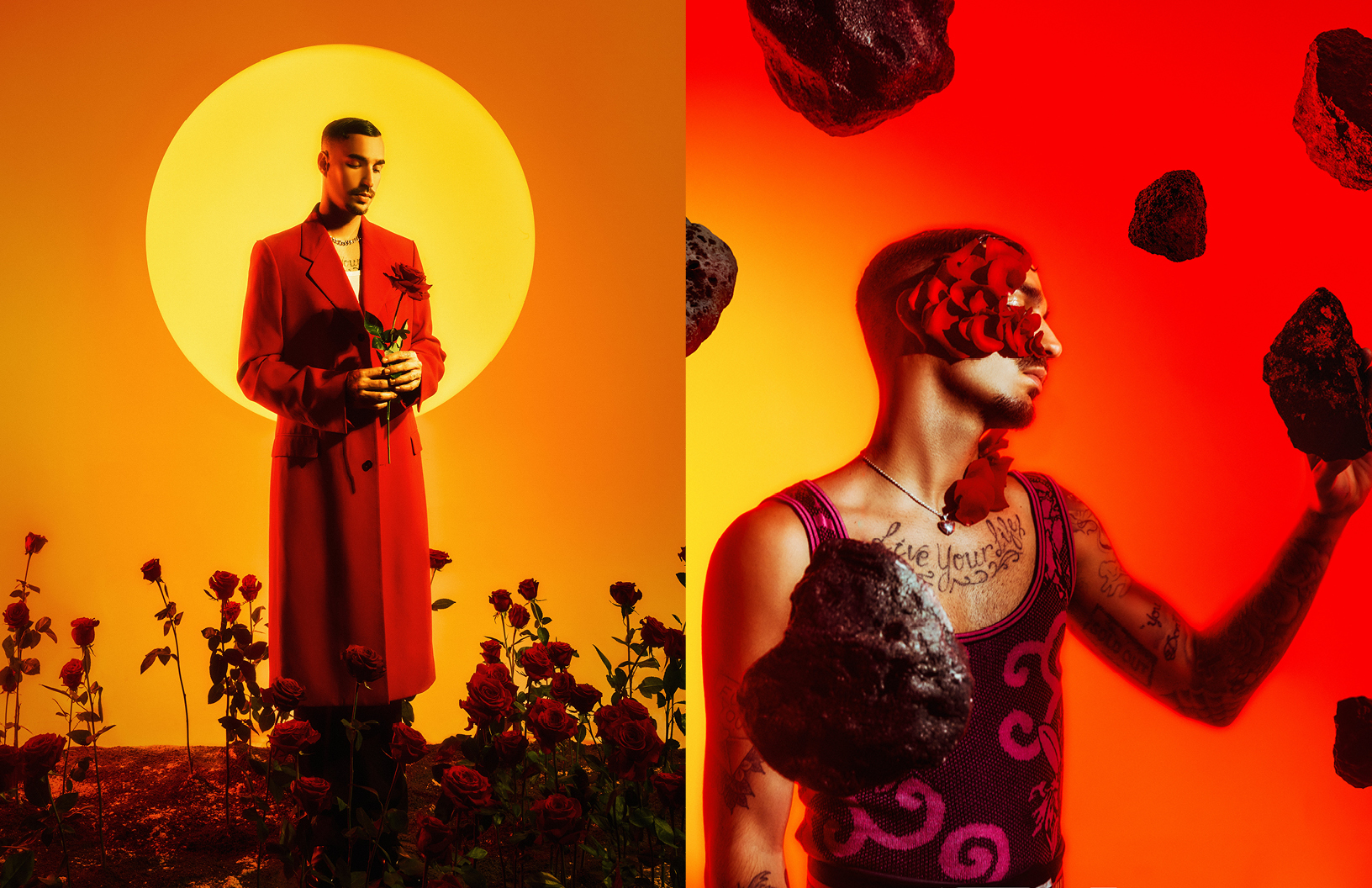
coat, trousers + shoes.. Ferragamo
tank top. Stylist’s Own
necklace. Martine Ali
opposite
tank top. Kenzo
jewellery. Talent’s Own
Have you ever wished that your music was not linked to such great fame?
Sometimes, yes. What I like is making music and being in the studio with my team. When you make the music work, all of a sudden this fame appears. It’s contradictory because without success you can’t make a living from music. That’s why I’ve learned to live with and try to handle it in the best way I can.
Have you ever thought of doing what Daft Punk did and always showing up with your face covered? [laughs]
If fame had come to me now it would be like Bizarrap — quiet in the background. Right now I enjoy the moment I’m in but in the future, I think I’ll prefer to stay inside the studio working for other people. Having a house with a private studio and composing for other artists.
Now we live in a time when the producers are also famous.
That seems great to me since the producer’s work has always gone largely unnoticed and now it is being given deserved importance. I started as a producer and it was very difficult for people to talk about my work. That’s why I think that now, even all those who want to dedicate themselves to producing music have to think about it twice because they can also become very, very famous.
Some people are delighted to be famous, don’t you think?
Some people love to be famous and attract attention. It’s normal to feel this way. I think it’s great even if I’m not that way.
I notice that you have learned a lot from all these years that you have been in the industry. What do you feel when you hear your first songs?
I feel like those songs are very, very far away from who I am now. Now life goes incredibly fast and I don’t even think too much in the beginning. When I listen to one of my first songs, I think that perhaps I would have done it differently. All those years are years in which I was growing and maturing. For that, I don’t regret a thing. It’s what has made me who I am today. I may want to change something or have done it differently, but I never stop being proud of everything I have achieved.
Many artists redo their songs after a while, hasn’t that ever occurred to you?
When I release a song I let it fly free. I enjoy its success, sure, but I never think about redoing or reliving that moment.
And when you sing them in a show, how do you feel?
I never build a show thinking about the new music I’m releasing at that moment. I do it thinking about what I want to sing in that concrete city. With the last two albums I’ve only included a couple on the set list and I’ve been on tour for three years. I don’t care much about those things. I like to do what I enjoy at that precise moment. I also think that people go to a show to hear songs that are not the most recent and songs that they know from the beginning. The public pays to come to a concert and I like to give them a little of what they want, but also a little of what I want, so we can all go home with a smile on our faces.
Of all the songs you’ve released so far, which would you say is the one that has best connected with the public?
“Lo que hay x aquí” has had one of the strongest connections I have felt with the public. That song doesn’t have a video clip but, even so, I received a lot of messages from people saying that they felt very close to that song. It has been one of the greatest things of my career.
Luckily, the newest things are the ones that work best.
I’m very surprised. I’m a singer who writes when I’m sad, trying to bring depth to my lyrics and I think that people feel very identified with that. That last song has a wild following — it was crazy, we are very happy.
Isn’t it hard to have to creatively nurture yourself during those moments of sadness?
In the beginning when you start and you are more inexperienced, if you write sad music when you are sad, you are guided by what you feel at that precise moment. It may be a little painful for you but, at the same time, you get to let off steam. It’s similar to telling your problems to a friend, but that friend is your song. When you are moving forward and writing more and more, the creative process changes. When I wrote the song “Lo que hay x aquí,” I was feeling super content with myself but the song is sad. You try to use some story you have in your head.
Many singers have a hard time writing fiction.
You can always find inspiration. I have about 130 or 140 songs released and, of course, I can’t always write about myself. Yes, you can talk about a feeling, search inside yourself and find examples that are beautiful and serve to describe it. You can often use a story someone told you or something you just saw one day.
Tell me one of those stories that have inspired you.
Once a friend told me how his relationship was destroyed during the pandemic and it inspired me to write the song “La última canción.” That song works super well at the concerts where I play it. Now that you asked me this, I remember a book about the singer Joaquín Sabina that talks about how he was inspired by the hardships of a friend to write songs when he no longer knew how to get inspiration. Something similar happened to me.
Of course, it is that constantly immersing yourself in a process of introspection, and examining the past must be exhausting… The past has a limit. Just like love as a theme.
I was in a relationship for five years and I wrote more than forty songs about love [laughs]. That’s a bit of the life of a composer because I consider myself above all a composer.
What do you think is the key to writing a song that manages to catch whoever listens to it?
The key is kind of everything we’re talking about. When I write, I think about my feelings — what I want to tell, what is happening around me, and the curiosity that all this could generate. Step by step you are uniting everything in a melody, adding rhythms, mixing everything. If you talk about a very, very strange thing, it’s more difficult for whoever listens to the song to identify with it, but if you talk about things that we’ve all experienced, it’s easier to connect with the song.
Is there a song by another artist that you found a connection with?
There is a song by Rosana called “Si tú no estás aquí” that I have listened to all my life and it still manages to make me tender. It’s like that teddy bear you’ve had since you were a child and you still hug when you’re sad.
Talking to you makes me think that during your career you have gone through good times and bad times.
Are we getting intense? [laughs].
Intense? We just mentioned Rosana! [laughs].
One of the bad things about the industry is that sometimes you get to meet artists you admire and see aspects of them you don’t like. I have tried to grow, to be mature, and learn not to appreciate the superficiality and bad vibes of the industry. I have created my own world and I feel very comfortable in it. If I’m talking about the most beautiful part of this business, I can tell you that one of the greatest privileges of my career is being able to travel. How everything has changed since the first time I got on a plane! I would never have gotten to where I am mentally and psychologically if it hadn’t been for those trips.
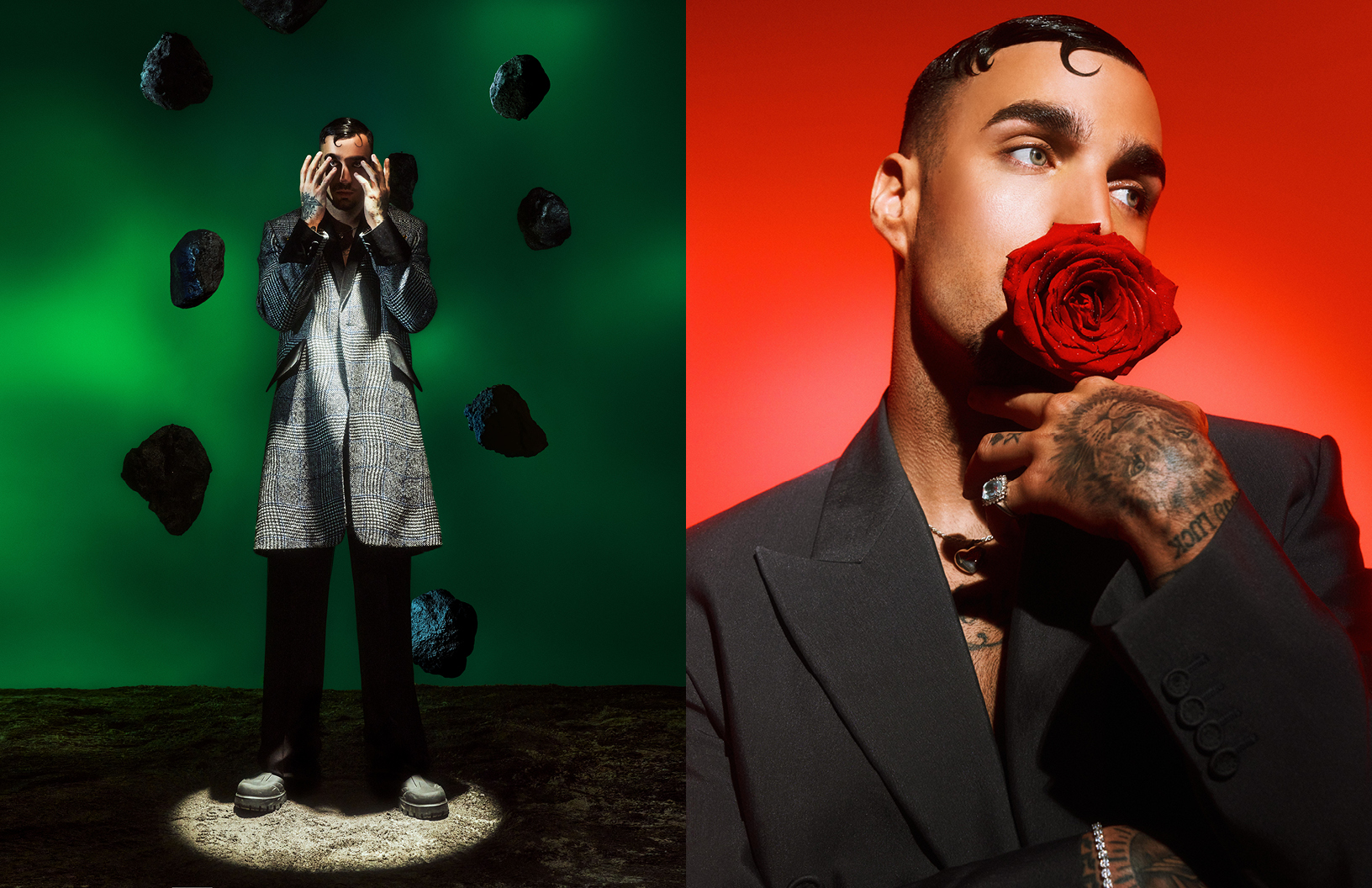
coat. Kenzo
top. MM6 Maison Margiela
trousers. Valentino
boots. Dior
opposite
blazer + shorts. Dior
jewellery. Talent’s Own
What place that you have visited has amazed you?
Mexico impacted me a lot.
You are a person who has taken risks during your career, leaving the record company you were with to produce and manage everything yourself. I’d like to know how you make those kinds of decisions.
I have always decided by myself, I have always taken the wheel. When I left the record company, it was already possible to work without one. We live in times where you can create music by yourself. Many singers are not in a record company and I think they will continue that way. The work ethic of record companies, in some aspects, is outdated and now the internet offers us much more freedom.
Who do you rely on to decide these kinds of things?
I can always count on my team, my closest friends, and my manager… If I don’t share what happens to me with them I would end up crazy. The decisions are made by me, but always listen to my people.
What’s the best advice they’ve given you?
Three years ago I was going to leave music and they advised me not to. A few months later I was in the prime of my career.
May I ask what happened during those bad times?
I didn’t know how to deal with fame or manage everything I felt when I became popular. The world came crashing down on me, it consumed me so much. I felt insecure, terrified, I didn’t want to go out into the street. I fell into a deep depression that led me to consider leaving everything behind. My best friend told me, no, not to do it, to fight to recover, and here we are now.
I imagine that fame has not made it easy to establish new personal relationships…
It is very difficult to make new friends, new loves. Most of the time, people have a secret agenda and that’s something you have to get used to because it never changes. No matter how much they grow and how much you mature, if you get a little distracted you can fall back into the trap. I have few close friends and lately, I have been making new ones because I take things with a more positive and much more adult attitude.
Well, now you have made a new friend named Rose, a robot that you have created for your new album, AfroLOVA’23.
Afrolova is the story of a person who can’t find love and goes from world to world facing problems and conflicts while looking for that goddess who makes him fall in love. He is always travelling with his pet named Rose, who is a red giant robot that my team has built. The robot really works — it’s functional, it’s crazy. SHXPIR, the creative director of the album, designed it in New York.
What’s the connection between Rose and you?
He’s like a pet. I am a person who has travelled the world with him in my own spaceship. Each song recounts the adventure that the protagonists live on one of the planets they visit.
Why did you choose a robot as a companion for this space journey? Why not something like Baby Yoda or a Wookiee, a creature of flesh and blood?
We had the idea together along with SHXPIR and, from the first moment, the proposal revolved around a robot. I just love the idea and I think how we have developed it is very original.
Don’t you think there is a great conceptual shift from your previous album to this one? In one we talked about an island paradise and in this other about intergalactic travel, why this twist in the script?
LA ISLA was called that way because of the feeling of isolation that we lived during those days, even though it was worked on an equal island. This one catches me in another stage of life, perhaps more investigative of everything and it is reflected in the music on the record, both in the lyrics and in the sound.
“Un Rodeo” is the song that introduces us to the new album, why did you choose this song?
I’m in love with that song from the first moment, I think it’s a very hot song and the guitar sounds are pure art!
Paul Èluard said that there are many worlds but that they are all in this one. How would you describe the universe of AfroLOVA’23?
It is all fantasy created in a room in my house. We wanted to talk about other planets because talking about the Earth is already very derivative and boring [laughs]. I’m just kidding. AfroLOVA’23 was inspired by Le Petit Prince by Antoine de Saint-Exupéry, a book that has been very important to many of us during our childhood.
photography. Yanran Xiong
creative direction. Shxpir
fashion. Nico Amarca
talent. Rels B
hair. Riad Azar
make up. Elika Hilata
set design. Selena Liu
floral design. Jeffrey Marcus + Miranda Anita
robot design + production. Fake Art Inc.
photography assistant. Derriyon Winns
fashion assistants. Mika Macieszko + Janiry Ramirez
studio. NYcap3D
interview. Juan Marti




